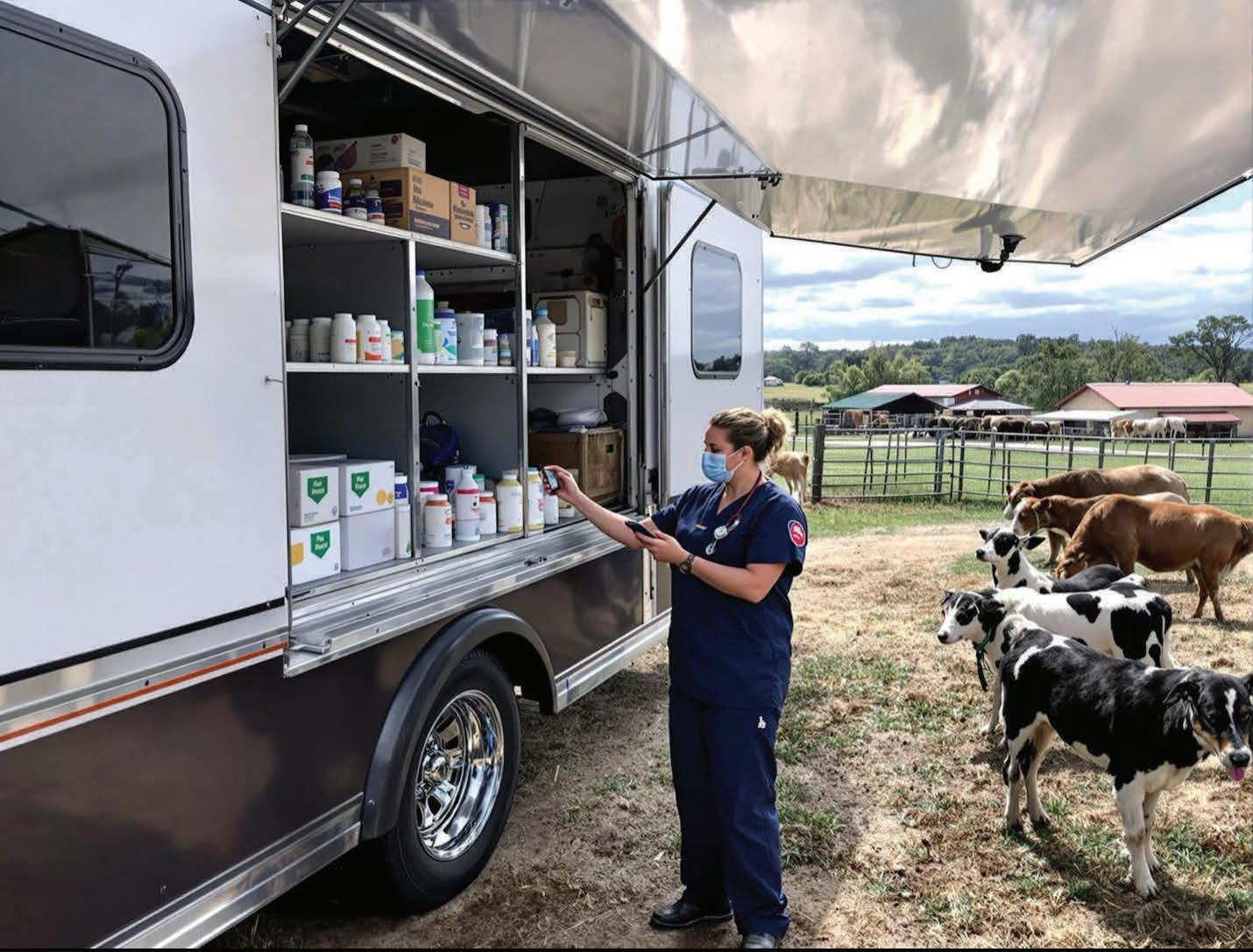

VETERINARIAN
A magazine of the Michigan Veterinary Medical Association
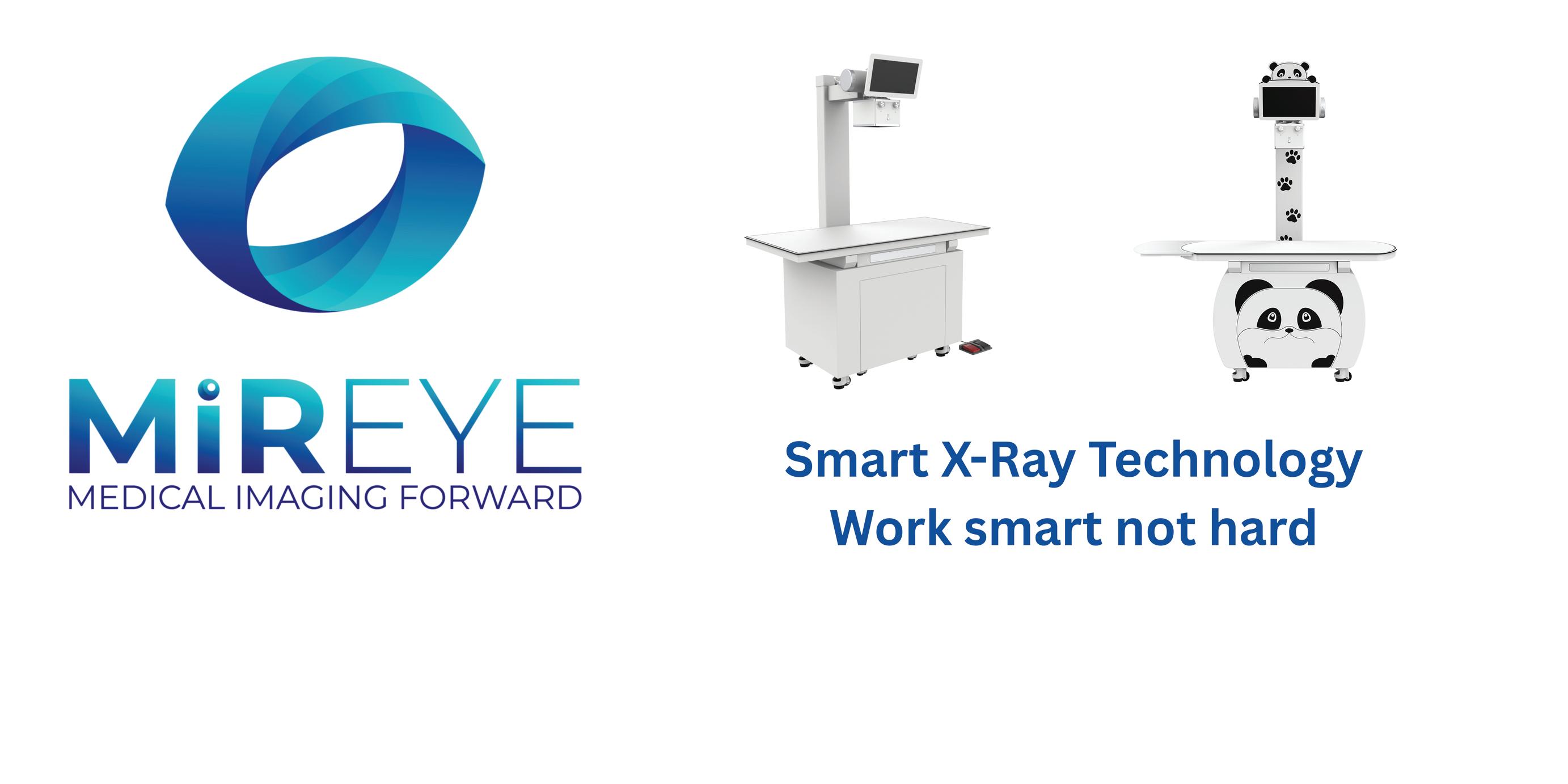

2025 BOARD OF DIRECTORS
Dr. Matthew J. Hynes, President
Dr. Elaine Sheikh, President-Elect
Dr. Timothy Duncan, First Vice President/Treasurer
Dr. Henry Reinart, Second Vice President
Dr. Dana A. Tatman-Lilly, Immediate Past President
Dr. Jill Lynn, AVMA Delegate
Dr. Larry A. Letsche, AVMA Alternate Delegate
DIRECTORS REPRESENTING DISTRICTS
Dr. Kelsey Deland, (1) Southern
Dr. Kerry Gilbert, (2) Michiana & (3) Southwestern
Dr. Laura Miller (4) Jackson
Dr. Chelsea Render, (5) Washtenaw & (9) Livingston
Dr. Emily Socks, (6) Wayne & (8) Oakland
Dr. Michelle Meyer (7) Macomb
Dr. Laurie Lockman, (10) Mid-State
Dr. Mary Kinser, (11) Western
Dr. Daniel White, (12 & 13) Saginaw & Thumb Vacant, (14) Northeastern
Dr. Kenny Rogers, (15) Northern
DIRECTORS REPRESENTING ASSOCIATIONS
Dr. Rebecca Dietlin, Southeastern MI VMA
AT LARGE DIRECTORS
Dr. Angel Abuelo Sebio, MSU CVM
Dr. Melissa Dyson, Lab Animal Medicine
Dr. Ashley Pfeiffer, Equine
Dr. Kayleigh Marinac-Prudente, Food Animal
MVMA STAFF
Bonnifer Ballard, CEO Rachel Boersma, Director of Member Services
Angel Davis, Director of Operations
Kara Henrys, Director of Learning & Strategic Partnerships

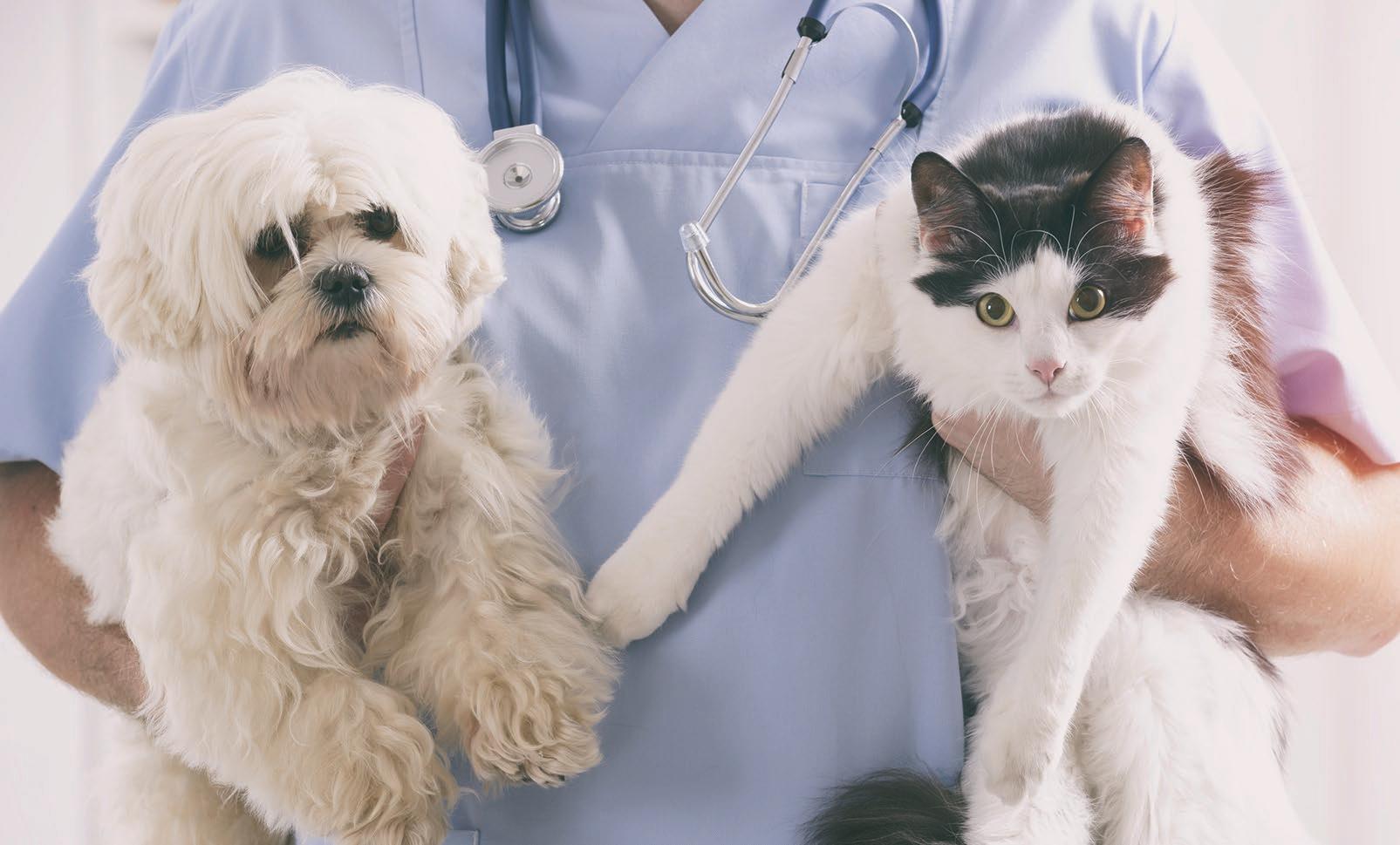
Dr. Julie Cappel, DVM
Chaddock,
Dr. Nora Wineland, DVM, MS, DACVPM and Rinosh Mani, BVSc, MS, PhD, DACVM
Managing Editor: Julia Waterer
Design/Layout: Kiersten Drysdale
Marketing Manager: Megan Stanley
Advertising Coordinator: Stefanie Hagidiakow
Stacey Kukkonen, Magazine Content Manager
Stacey Kukkonen

but now we’re stronger as Risk Strategies.
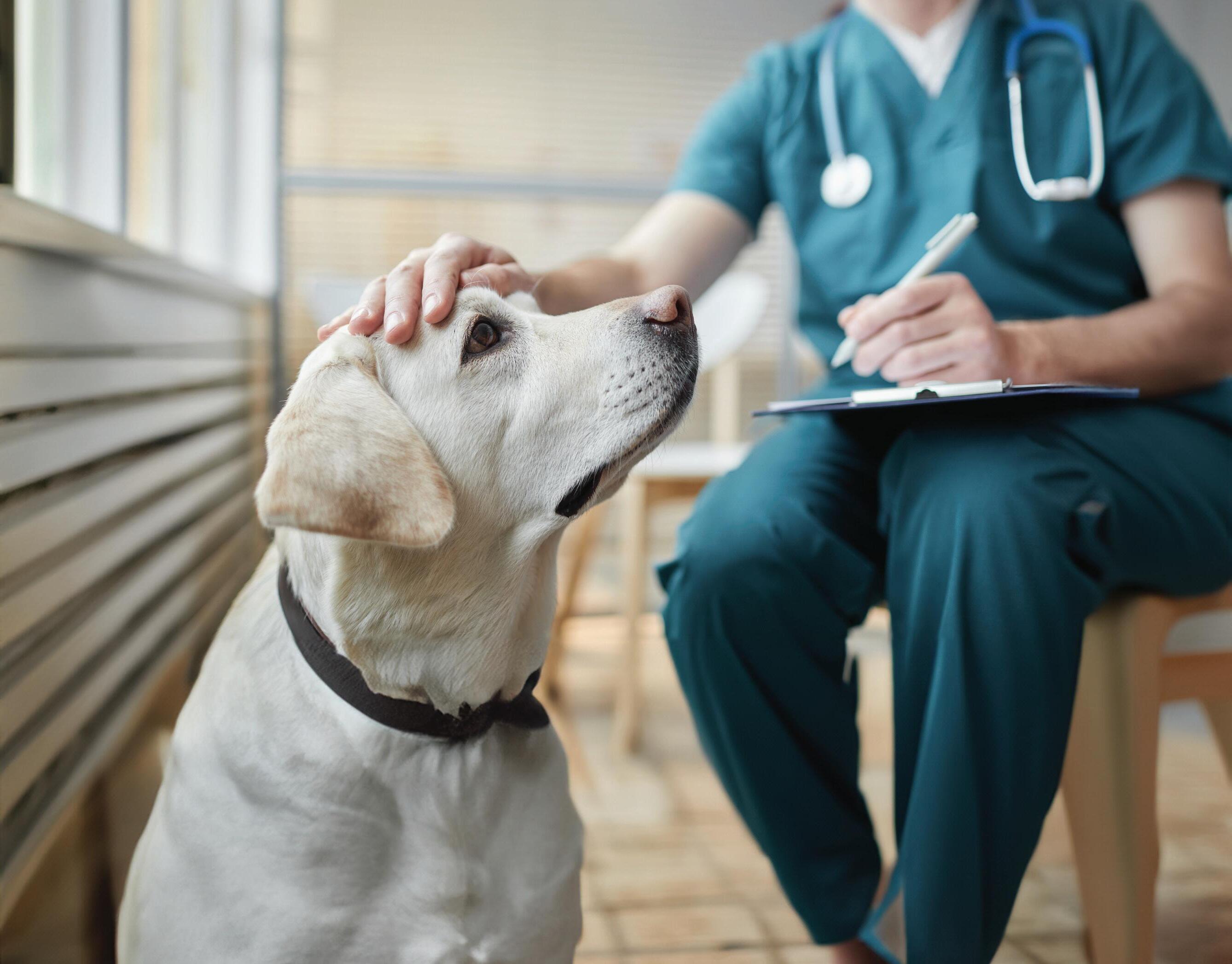
The experts you know and trust at Ralph C. Wilson Agency for understanding the risks you face as veterinarians have joined forces with Risk Strategies, a top national specialty insurance broker with experts in over 30 practices.
From employee benefits to business insurance, life insurance, or Medicare coverage, we will continue our commitment to develop customized insurance programs for MVMA members. Let us be your trusted risk management advisor and partner, so you can focus on what’s most important to you – taking care of animals and building your practice.
Contact our local advisor, Bill Percha, at bpercha@risk-strategies.com or 248-864-7448 to review your insurance program and provide a customized solution that meets your needs.
risk-strategies.com
ralphwilsonagency.com
The Three Cs of Association Membership: Content
By Bonnifer Ballard, MLD, CAE
This is my final message on the Three Cs. We’ve talked about Community and Collaboration. Let’s talk about Content. What content does the association offer to help me be the best I can be? MVMA has quality content and is looking to expand.
CE
While MVMA has long provided quality continuing education, we want to do more. That’s why we’re stepping up our game. During the strategic planning process, we will be identifying gaps and working to fill those gaps. For example, we will be continuing our new equine wet lab and are looking to add newer CE for other groups. We are also developing resources for speakers that help them incorporate the best approaches for adult learning – engaging content with lots of ways to participate. We don’t just want to deliver CE programming; we want you to be able to apply what you learn.
There is also an opportunity for members who hold Board certification to present and teach others. We’re always looking for energetic and thoughtful specialists willing to share what they know – DVMs and VTSs both.
Blogs and Articles
MVMA hasn’t historically offered technical content in our magazine or on our website. We know you look to JAVMA and others for that. However, we do want to offer members a glimpse into case studies that help you learn from your colleagues’ experiences. This may be an opportunity for a member to share a particularly interesting case. It may also be an opportunity for our industry partners to share their thought
leadership while giving members access to cutting edge information. Ralphie, my own family's Christmas puppy, turned up with Hypereosinophilic Syndrome in May. He got the all clear in July. I hope to share more about this with you in a future article.
Podcasts and Videos
MVMA has explored podcasts and vlogs in the past. We will be testing some concepts to see what seems to work best for members over the coming year. We know there are lots of options.
Reports that Show Trends
I’ve been in discussion with several potential partners on MVMA’s role in being
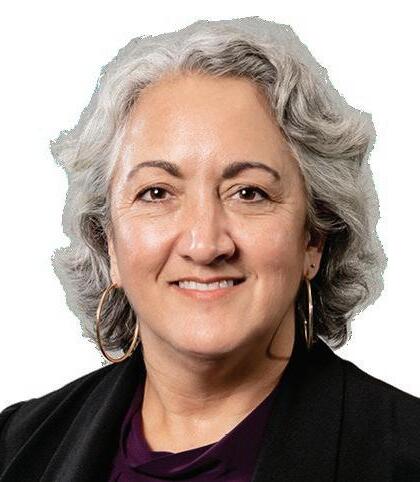
a resource on vet med in Michigan. It would be helpful to know what you look to MVMA for, or what information gaps you think exist.
The truth is there is a lot of information out there for anyone. MVMA wants to curate information in ways that make it easily accessible and digestible. Some content needs to be in person. Some content can be delivered asynchronously, in snippets or bite sized. We know you’re busy and time is precious. Help us get the right mix. If you have an opinion, please share it with us. Take a moment to drop me an email to share your thoughts and ideas.

Current Practices for sale in Michigan
MI: Southeast - North side of Detroit. Established, companion animal hospital in a great location with a long, positive history of serving clients from the region. The revenues are over $2M and growing. It is housed in an attractive 4,300 sq. ft. facility with all the usual amenities (MI409)
MI: Coastal Southwest -Reduced price! Small animal clinic located only a mile from the shores of Lake Michigan. It is housed in a 3,000 sq. ft. facility with great visibility and that is well-equipped with digital x-ray, ultrasound and more. Both practice and real estate are for sale. (MI328)
MI: Western - NEW! Practice and real estate for sale! Small animal, general practice with revenues over $1.1M. Housed in a 3,600 sq. ft. facility that is well-equipped. (MI432)
MI: Lower-central - Solo, companion animal hospital in close proximity to I-94 and 194/66. It is a solid practice in a good location. The practice is housed in an attractive facility with all the usual amenities. The owner is ready to retire so the practice is for sale and financing is readily available and the after-debt cash flow to the new owner is very good. (MI423)
MI: Eastern - Small animal practice located about an hour northwest of Detroit. It is an active and growing, solo practice housed in a well-maintained and well-equipped facility. The owner is ready to retire so both the practice and real estate are for sale. (MI412)

MI: NEW! Southwest - Established, small animal practice with a location that provides easy access to the Lake Michigan shore and many local communities. It is housed in a free-standing, 4,200 sq. ft. facility with 6 exam rooms! The owner is ready to retire so both the practice and real estate are for sale. (MI508)
MI: Central - Established, solo, small animal hospital located in Lansing, MI. The practice is well-equipped and housed in an 1,800 sq. ft. facility with plenty of room for future expansion on the almost 4 acres of property. Both practice and real estate are for sale. (MI407)
MI: Eastern - Small animal clinic located in a delightful community north of the Detroit metropolis. The current owner has kept the practice small for a balanced life-work schedule but is still growing and up 20% this year. It is housed in a 1,200 sq. ft. facility with good visibility and easy off-street parking for clients. Both the practice and real estate are for sale. The owner will help with the transition. (MI235)
MI: Southwest - Small animal practice located in the Kalamazoo-Lansing-Grand Rapids area. Housed in a 2,800 sq. ft. facility that sits on a 40 acre property that offers plenty of opportunity for expansion. The practice currently has 2 exam rooms and all the usual amenities. Owner will help with the transition (MI522)
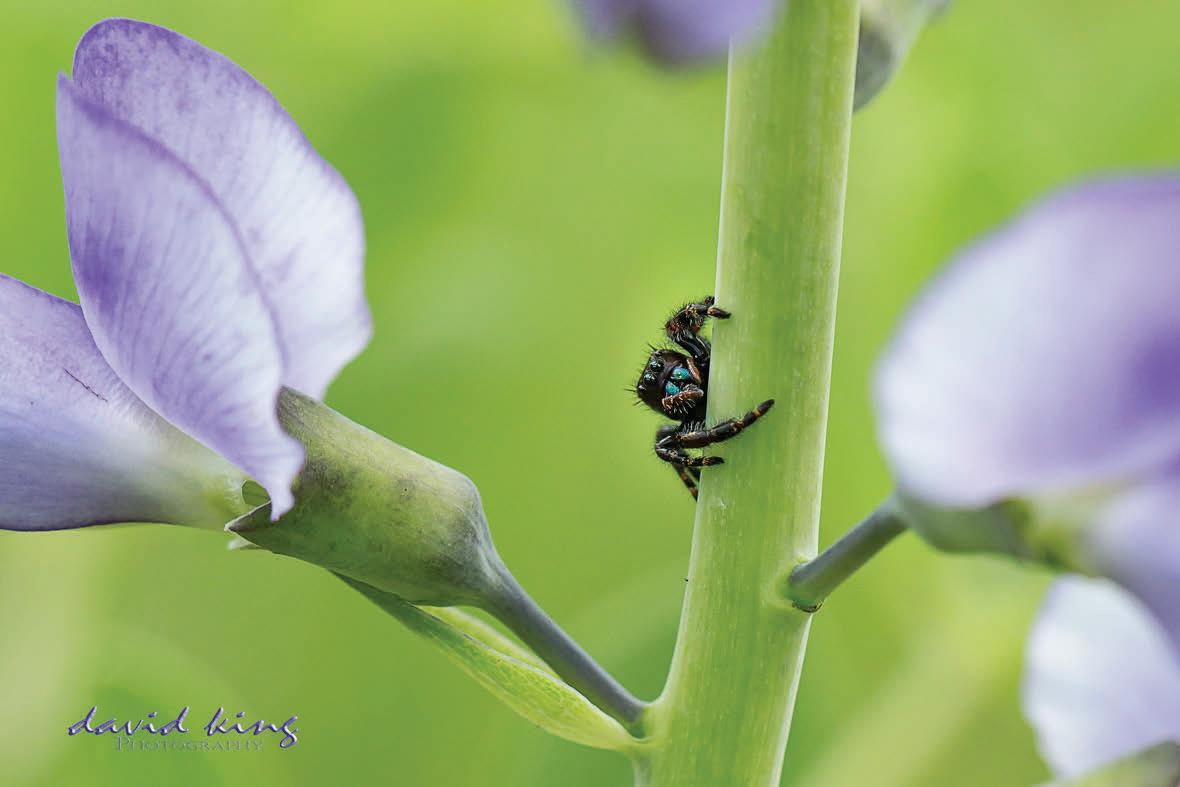

Give What You Can
By Matt Hynes, DVM
Happy back to school time everyone. I hope summer was restorative, and everyone got through the heat waves and big storms, and are all the better for it. Fall is a time so full of change and activity. As I write this, MVMA will soon be having our fall conference, and our strategic planning retreat. I immensely look forward to sharing the developments on our future as an organization as they emerge. It should be an exciting process.
That said, whenever I think of the fall, I start thinking about the holidays, especially Thanksgiving. What am I thankful for? But also, what have I given this year for others to be
thankful for? This fall, the MVMA asks you, its members, to think about giving.
If you have thoughts and opinions, please share them with us, whether it be at a town hall, via email, a MiVetCon lunch/ event, or any other way you see fit. Those who do will be instrumental in reshaping our strategic plan.
For the financially fortunate, please consider giving to MiVetPAC or the AVMA PAC. Those who do will help in magnifying our organizational voice and ongoing political relevance. And/or you could give charitably to MVMA's Michigan Animal Health Foundation – help pets down on their luck get the care they need, as well

as further research and educational grants to help better our profession.
For those with a little time to spare, please give as a volunteer or committee member. Those who do will, I suspect, find it time well spent... helping build relationships, make meetings bright, and enhancing perspective within our state and our field of medicine.
Now, I know for most of us in vet-med, time is at a premium and money is tighter than ever. All the more reason to reach out! Let us know how MVMA can help make your work and life better. Every little bit helps us help each other. Be well colleagues!
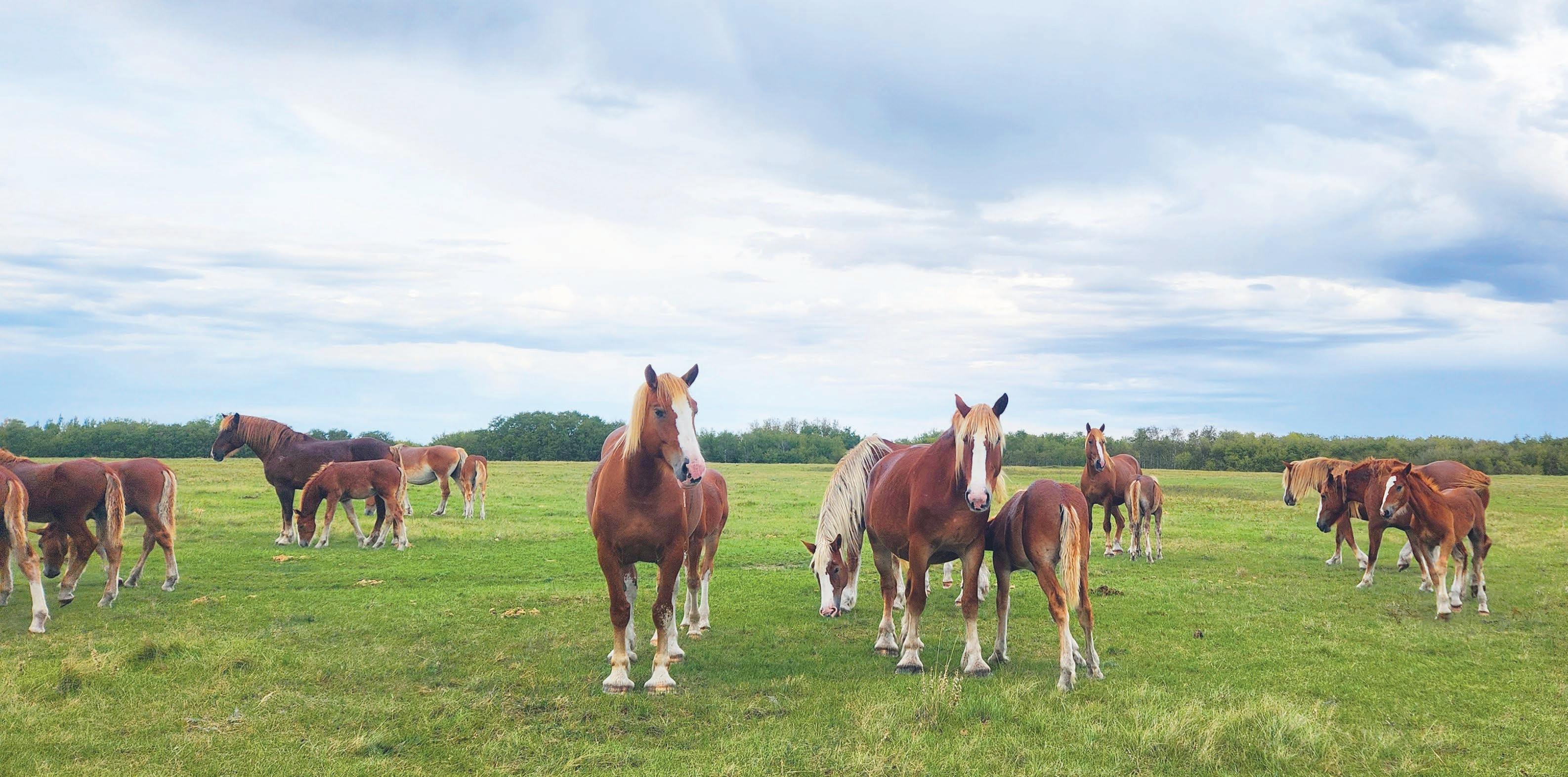
For those with a little time to spare, please give as a volunteer or committee member. Those who do will, I suspect, find it time well spent... helping build relationships, make meetings bright, and enhancing perspective within our state and our field of medicine.
5 Simple Ways
to Improve Your Leadership Energy

BY DR. JULIE CAPPEL, DVM
In veterinary medicine, leadership is about inspiring, supporting, motivating, and cultivating a team culture that thrives even in the face of stress. Whether you're the practice owner/manager, a veterinary technician, or a new associate, the way you show up – mentally, emotionally, and physically –impacts your patients, your clients, and your co-workers.
As a former hospital owner and now life coach, I have seen firsthand how outstanding leadership transforms not only the financial health of the business but the emotional health and resilience of the entire hospital team. You have the ability to lead, even if you feel impostor syndrome when you hear the word ‘leadership.’ We all can create our own unique leadership energy.
Here are five simple ways to improve your leadership energy and build a strong, resilient, and mentally healthy team.
START YOUR DAY WITH POSITIVE INTENTIONS
The first minutes of your day, whether at home or in the clinic, matter. Instead of scrolling your phone or working on your to-do list, take a moment to check in with yourself and your team. Ask yourself: How do I want to lead today? What energy do I want to feel in the hospital? Greet your team members and ask them for their input and intentions for the day. Share your vision and help them focus on patient and client care. What kind of service energy do we want to offer today? Keeping your vision and intentions clear will make your team members feel secure and supported.
1 2
If you begin to feel overwhelmed or stressed during your shift, try a short grounding ritual, such as box breathing, thought dumping, or taking a quick walk outside. This intentional pause will help you shift from reactive (boss) mode to calm purposedriven openness.
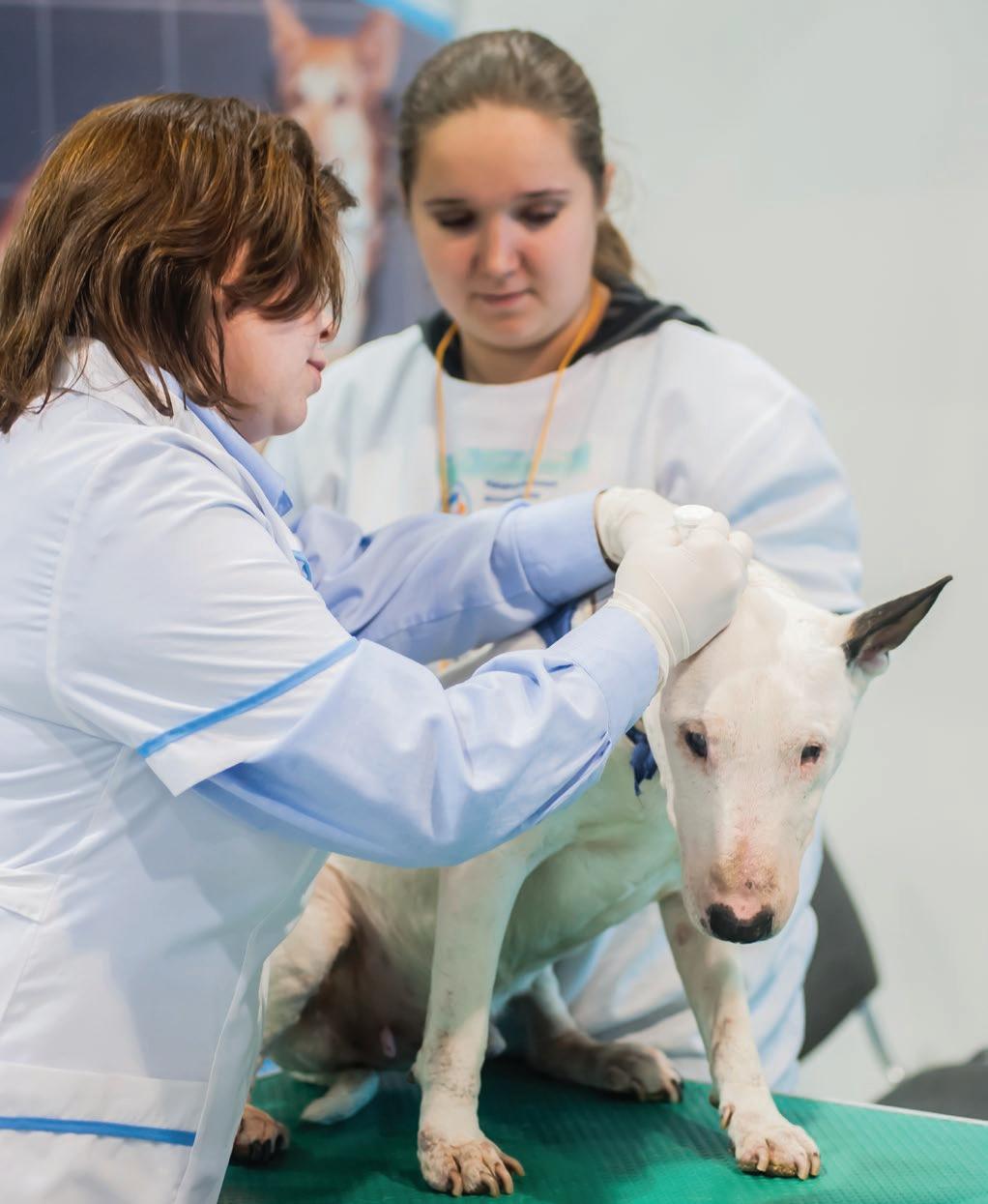
FOSTER TRUST BY EXHIBITING EMOTIONAL INTELLIGENCE
Our veterinary work is often emotionally demanding, with employees experiencing stress, clients facing grief, and high-pressure situations. Leaders who exhibit emotional intelligence – self-awareness, empathy, and the ability to manage their own emotions – create a safe environment for their team. Stable leaders respond appropriately, and offer

genuine support when team members are struggling. A leader who listens without judgment and responds with care creates trust and emotional safety for everyone.
LEAD WITH CURIOSITY AND WITHOUT JUDGMENT, AND ENCOURAGE PERSONAL GROWTH
Leadership energy grows in curiosity. Instead of trying to fix everything or micromanage and control your team, ask more questions. Expect your team to create the solutions: What do you think we could do differently? How do you want to solve this problem? Empower your people to make decisions and back them up when they make mistakes. This approach reduces pressure and invites collaboration. It also shifts the emotional load off your shoulders and creates a more engaged, empowered team – which boosts everyone's energy, not just yours.
Encourage personal growth by providing opportunities for your team to participate in continuing education on medical proficiency, as well as self-care and mental health. Providing mentorship or therapy/coaching opportunities for your team allows them to practice burnout prevention and better handle stress. I currently work as a life coach for two veterinary practices that provide coaching services as a benefit for their team. Team members feel supported when their leaders promote mental health assistance. As leaders, we need to demonstrate to our team members that asking for and accepting help is normal and essential to their longevity in our career.
3 4
COMMUNICATE CLEARLY AND EFFECTIVELY
Every great leadership book emphasizes the importance of communication, as it is crucial to all successful businesses and relationships. Clear, honest, and consistent communication is the responsibility of the leader. Miscommunication can lead to mistakes, misunderstandings, and conflict. A strong leader sets clear expectations, provides timely feedback, and ensures
“A good leader is a person who takes a little more than his share of the blame and a little less than his share of the credit.”
– John C. Maxwell
that the team is aligned with the clinic's values and goals. More importantly, leaders encourage open dialogue – creating space for team members to express concerns or ideas without fear. Clarity doesn't mean over-explaining; it means being transparent, direct, and most importantly, approachable and forgiving.
5
PRACTICE BEING ADAPTABLE AND FLEXIBLE
Our profession is constantly evolving and changing – from medical advancements to client expectations and workplace dynamics. A strong leader remains flexible and open to change. They don't resist new ideas or processes; instead, they embrace them. Adaptable leaders pivot when necessary, especially during crises, and they encourage their teams to do the same. A versatile leader fosters resilience, innovation, and a culture that sees change not as a threat but as an opportunity for growth. Empower your team to make changes as necessary without needing to check in with you. The more you trust and empower your team, the more smoothly your hospital team will run.
Leadership energy isn't about being the loudest or busiest person in the hospital. It's about being the most grounded, open, and intentional version of yourself.
We all have the ability to grow as leaders. When we work on our energy, we lead with authenticity, resilience, and compassion – and that's the kind of energy that transforms and empowers teams.
EVENTS
Events Calendar
OCTOBER 2025
NOVEMBER 2025
DECEMBER 2025
JANUARY 2026

MVMA SMALL ANIMAL SERIES (SAS) PROMOTION
Learn More, Pay Less: Registration for the 2025-2026 Small Animal Series is Open
Don't miss the opportunity to earn 36 hours of CE for one low price until October 1! Members may register for the entire series for $1149 for DVM's and $985 for LVT's and practice staff.
With both in-person and virtual participation options available, the 2025–2026 Small Animal Seminar series (SAS) is the perfect way to access cutting edge techniques from nationally known practitioners and meet the in-person CE requirement needed for license renewal.
Space is limited for in-person seating. This full-series offer is only available until 5 PM on Wednesday, October 1. After this date, sessions will only be offered on an individual basis and will return to standard pricing.
• October 8, 2025: Oncology with Philip J. Bergman, DVM, PhD, DACVIM (Oncology)
• November 12, 2025: Dentistry with Jamie A. Berning, DVM, DAVDC
• December 3, 2025: Communications + Practice Management with Heidi Hulon, DVM
• March 4, 2026: Anesthesia with Kate Cummings, DVM, DACVAA
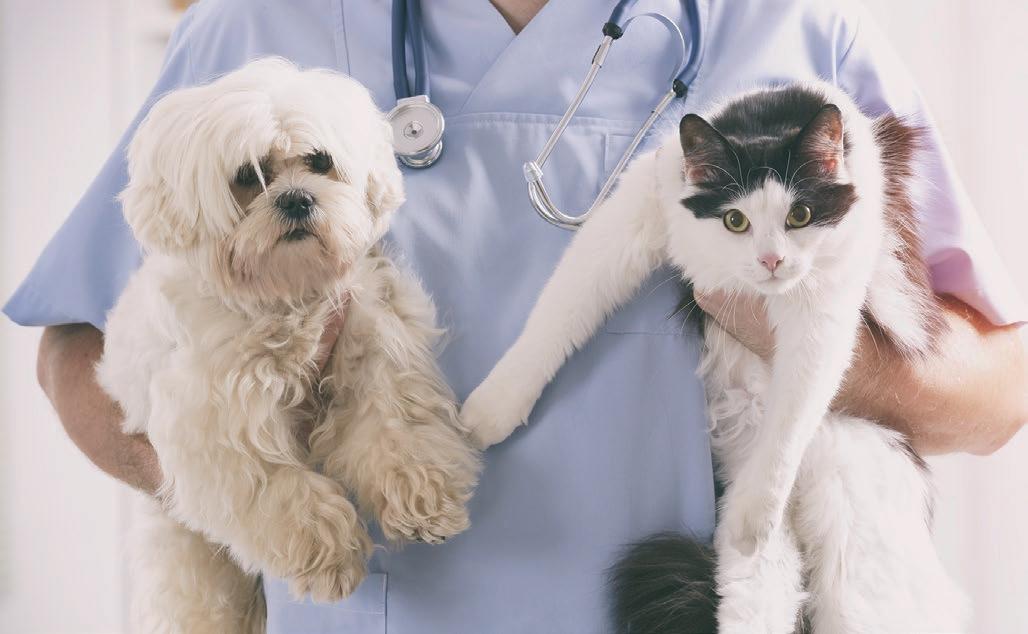
April 8, 2026: Internal Medicine with Andrew Woolcock, DVM, DACVIM (SAIM)
• May 6, 2026: Neurology with Ryan Gibson, DVM, DACVIM (Neurology)
Registration at www.michvma.org/events/2025-2026-smallanimal-series---full-series
THE 2025 LUNCH AND LEARN WEBINAR SERIES AVAILABLE
Don’t Miss 12 Hours of Live and On-Demand Content
There are still three more webinars to view live during the 2025 Lunch and Learn series:
• Wednesday, October 22: Common Dental Abnormalities in Small Animal Medicine with Lynn Happel, DVM
• Wednesday, November 19: Ozone Therapy: What Works for Your Practice? with Jonathan Lowe, Vice President, O3Vets
• Wednesday, December 10: Holistic Veterinary Medicine and the Whole-Body Approach with Rachel Wright, DVM, Owner and Founder, Great Lakes Animal Health.
You can still view all nine hours of content on demand.
• JANUARY: How the Earned Sick Time Act Will Affect Your Practice
• FEBRUARY: Feline Diabetes and Oral SGLT2 Inhibitors
• MARCH: Practice Financial Health and Next Steps
• APRIL: Team Building & Communication
• MAY: Minimizing the Impact of Burnout on Your Bottom Line
• JUNE: Cyber Security & Keeping Your Practice Data Safe
• JULY: Oh No: My Dog's Skin Is Making Me Crazy! What To Do: An Interactive Session
• AUGUST: Oncology Emergencies
• SEPTEMBER: Discussion with the Experts at the MSU Veterinary Diagnostic Laboratory
Lunch and Learn will be back for 2026! Packed with timely topics in an easy to digest virtual format, available live and on-demand. Never worry again if your busy schedule changes last minute.
For a limited time MVMA will offer a discount for registering for the full 2026 series of Lunch and Learn webinars. Watch your email for more information so you don’t miss the opportunity to take advantage of 12 hours of accredited continuing education at one low price.
Don't let your busy schedule get in the way of you obtaining quality CE.
Visit www.michvma.org/lunch-and-learn-schedule to learn more.
DISCOVER YOUR FULL POTENTIAL WITH THE POWER OF 10 LEADERSHIP ACADEMY
Apply today for a year of free leadership training with MVMA’s POTL.
Building a community of progressive and leadership-driven practitioners is the main purpose of MVMA’s Power of 10 Leadership Academy (POTL). Designed to cultivate leadership skills and provide important team and skill-building experiences, the POTL is a completely free, real-world, relationship-building program consisting of five leadership development sessions that occur over a one-year period. During each session, MVMA provides continuing education credit for one-on-one access to experts who cover topics like team building, effective communication, regulatory information, financial, student loan and tax information human resources, impacts of legislation on veterinary medicine, work/life balance, personal wellness and much more!
In addition to building a community with your POTL cohort, you will also get the chance to network with progressive practitioners, MVMA leadership, and past POTL participants.
Tentative Session Dates for 2026 Include:
Saturday, April 18, 2026
Thursday, May 14, 2026
Wednesday, July 29, 2026
Wednesday, September 16, 2026
Wednesday, November 4, 2026
If you are interested in becoming a part of an active learning community, this opportunity is for you!
Candidates for the Power of 10 Leadership Academy will have graduated from a college of veterinary medicine within the last five to seven years and are MVMA members in good standing. To be considered, please complete the Power of 10 Leadership Academy application form that can be requested by contacting Kara Henrys, Director of Learning and Strategic Partnerships, at henrys@michvma.org or 517-347-4666. The deadline to apply is Monday, February 2, 2026.
Each and every veterinarian deserves a fulfilling career. The Power of Ten Leadership Academy is for you.
To derive the most benefit from the program, your attendance is expected at all Power of Ten meetings. Please get your practice owner’s commitment to support your involvement in this initiative since it means you will likely miss a few days of work for these important sessions.

Why Every Veterinarian Needs the Vetlen Pouch in Their Wound Care Toolbox
Infections remain one of the most persistent challenges in veterinary care. From biofilm-laden chronic infections to hard-to-heal surgical sites, systemic antibiotics and traditional local treatments often fall short. Enter the Vetlen Pouch—a revolutionary drug delivery device changing how veterinarians treat infections. If you perform surgery or treat wounds in your practice, the Vetlen Pouch isn’t optional—it’s essential.
The Vetlen Pouch: A Smarter Approach to Localized Drug Therapy
Developed by Vetlen, the veterinary division of the human-focused Purgo Scientific, the Vetlen Pouch offers a sustained, customizable antibiotic delivery system that targets the infection directly—right where it counts. Unlike systemic antibiotics or one-time-use antibiotic beads, the Vetlen Pouch is placed directly at the wound site and can be replenished daily via syringe, maintaining high local antibiotic levels for up to 30 days. It’s easy to place, dose, and when you’re done, simply pull it just like a surgical drain.
This approach not only improves outcomes by overcoming barriers like biofilms, but also reduces systemic side effects and helps prevent antimicrobial resistance.
A True Game Changer in Veterinary Wound Care
Whether you're dealing with chronic infections, challenging surgical sites, or clients who struggle with administering systemic antibiotics, the Vetlen Pouch offers a practical, reliable, and highly effective solution.
Stephanie Morley, DVM & President of Vetlen, puts it best:
“Vetlen Pouch is not just about better outcomes—it’s about giving veterinarians a tool that simplifies wound management and improves quality of life for both patients and their owners. The Vetlen Pouch is the new standard in local drug delivery.”
Fight Infection Where It Starts
If wound care or surgery is part of your practice, the Vetlen Pouch should be in your toolbox. From routine surgeries to the most stubborn infections, this innovation has proven its worth across species, infection types, and clinical challenges.
Get Vetlen Pouch. The new standard in local drug delivery. Learn more at www.vetlen.com.

Real-World Results: Case Studies Across Species
The Vetlen Pouch is not just theory—it’s already transforming outcomes in clinical practice. Here are three cases where the Vetlen Pouch made a critical difference.

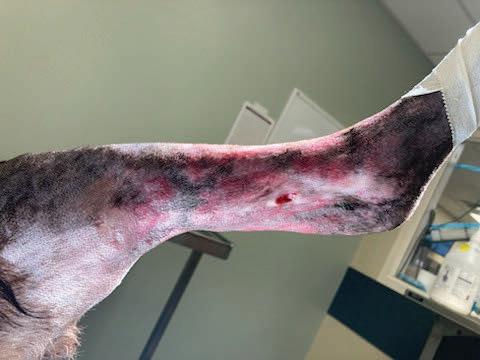
Canine Case – Achilles Repair Infection
BluePearl, Grand Rapids, MI
A seven-year-old Labrador retriever underwent Achilles tendon repair that became complicated by MRSP osteomyelitis, despite systemic antibiotics and amikacin-loaded beads. After nearly 100 days of persistent infection, the Vetlen Pouch was placed directly at the site and dosed daily with amikacin.
Outcome:
Simple, drain-like placement
Owners managed home dosing easily
Infection resolved within weeks
Dog returned to normal function with orthotic support
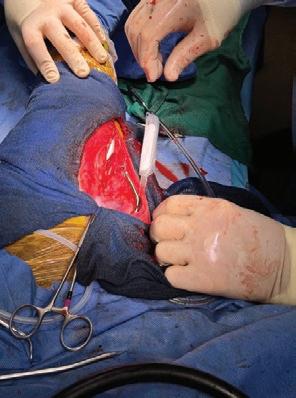
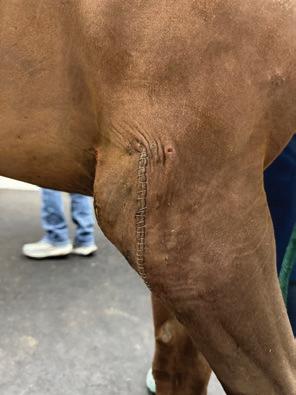
Equine Case – Ulnar Physeal Fracture
Rood & Riddle, Lexington, KY
In a five-week-old thoroughbred filly, the Vetlen Pouch was used prophylactically during surgical fixation of a proximal ulnar physeal fracture. This case demonstrated the pouch’s versatility in infection prevention even in very young, high-value patients.
Outcome:
Pouch was removed after 4 days
No infection occurred
Normal healing progression and return to paddock activity
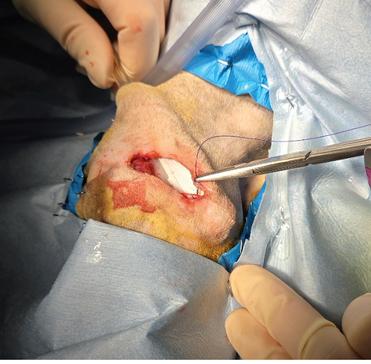

Feline Case – Chronic TECA-BO Infection
Bridge Animal Referral Center, Edmonds, WA
A two-year-old DSH cat, had recurrent abscesses and multi-drug-resistant Pseudomonas after multiple TECA-BO surgeries. Oral and injectable antibiotics were poorly tolerated. The Vetlen Pouch was placed during revision surgery and infused daily with diluted amikacin.
Outcome:
No signs of infection after 2.5 weeks
Pouch tolerated well in the sensitive facial region
Owners found the system easy to use
Cat is now thriving, with no recurrence.
MVMA’s Michigan Animal Health Foundation Funds Successful Educational Program for Michigan’s Upper Peninsula
By Mike Chaddock, DVM, EML, Chair, MAHF
The Michigan Animal Health Foundation (MAHF) Board of Trustees in July 2024 voted to fund an educational grant proposal from WNMU-TV PBS, a nonprofit, non-commercial public television station licensed to Northern Michigan University’s (NMU) Board of Trustees, operating from studios on NMU’s campus in Marquette, Michigan. The station reaches more than 142,000 people across the Upper Peninsula of Michigan and northeast Wisconsin.
In addition to PBS programs, WNMU-TV produces programs locally that capture the interest and needs of their viewers. Ready access to timely veterinary care can be a challenge for many of Michigan’s rural Upper Peninsula. ‘Ask the Veterinarians’ was a one-hour interactive program produced and programed on January 30, 2025, and again on June 5, 2025, designed to bridge the knowledge
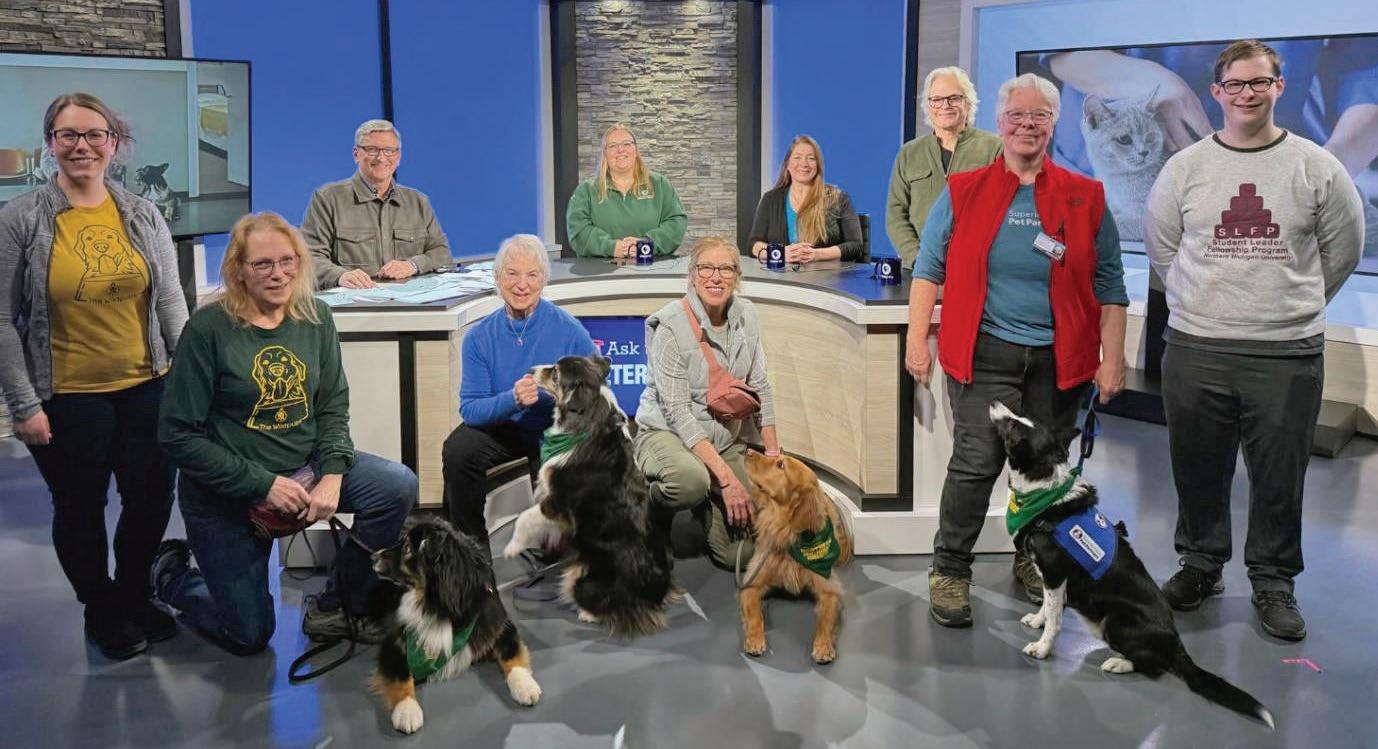
gap and the need-for-care gap by having Michigan Veterinary Medical Association (MVMA) member veterinarians from the U.P. answer viewers’ call-in questions and concerns about their animals. While the guest veterinarians provided only

general advice, the information helped viewers in similar situations decide whether it is warranted to seek out the service of a veterinarian. Topics and questions asked by viewers to the veterinarians included emergency care, dog and cat itching, flea and tick prevention, farm animal delivery, ear infections, declawing of cats, and behavioral concerns just to name a few. The final question on June 5 was, “When is the next show?”
During each episode, the MAHF received three underwriting credits and a voiceover at the beginning, middle, and end of each program which stated, “Ask the Veterinarian is made possible with a grant from the MAHF. Founded in 1969 by the MVMA, MAHF provides grants for research and educational projects that help animals live long, better, and healthier lives.”
Recognition of MVMA’s Michigan Animal Health Foundation donors
Listed as of June 30, 2025
Dr. Dale Ackler
Dr. Jeffrey Adams
Dr. Lyssa Alexander
Dr. Michele Anderman
Dr. Nicole Arcy
Dr. Christian Ast
Dr. Maureen Austin
Dr. Dechamma Ballaranda
Bonnifer Ballard
Dr. Karen Barbu
Dr. Kim Barna
Dr. Lincoln Baylis
Dr. Arthur Beaudoin
Dr. Rick Beisinger
Dr. Joel Beutler
Dr. David Bezek
Dr. Theresa Bismack
Dr. James Botsford
Dr. Alexa Boulton
Dr. Daniel Brown
Dr. Emily Browning
Dr. Christopher Buckley
Dr. Bonnie Burke
Dr. Loren Burlingame
Dr. Steven Burns
Dr. Isaac Burrell
Dr. Sebastian Buzdug
Dr. Julie Cappel
Dr. Ryan & Marcia Carpenter
Dr. Michael Chaddock
Dr. Amanda Charney
Dr. Michelle Clancy
Dr. Dale Clark
Dr. William Cline
Dr. Sandra Cline
Dr. Rebecca Coll
Dr. Jim Connell
Dr. James Cook
Dr. Susan Cook
Dr. Jeanne Corbett
Dr. Kelly Credille
Dr. Anna Davis
James & Heather Dedyne
Dr. Leslie Deines
Dr. Pierre DePorre
Dr. Joanne DeSana
Dr. Stanley Diment
Dr. Jeffrey Dizik
Dr. Judy Duderstadt
Dr. Nina Duflo
Dr. Timothy Duncan
Dr. Timothy Eagan
Dr. Kathryn Eckler
Dr. Julie Estell
Dr. Matthew Fain
Sharon Fandel
Dr. Susan Farmer
Dr. Garry Fedore
Dr. Myda Fisher
Dr. Marissa Fitzpatrick
Dr. Michael Fleming
Dr. Tessa Forbes
Dr. Race Foster
Dr. Emily Geldersma
Dr. Kenneth Gertsen
Dr. Todd Gilbert
Dr. Christi Gorczyca
Dr. JoLynne Grant
Nancy Greeley
Dr. Clinton Groover
Dr. Erin Haas
Dr. Steven Halstead
Dr. Laurie Hanson
Dr. Heather Haskins
Dr. Nicole Hein
Dr. Lucy Henney
Dr. Kara Henning
Kara Henrys
Dr. Jennifer Herdon
Dr. Kathryn Hoevenaar
Dr. Gail Hoholik
Dr. Stephanie Holloway
Dr. Kellie Holmstrom
Dr. Amanda Houk
Dr. Matthew Hynes
Dr. Scott Jandron
Dr. Whitney Jencka
Eric Johnson
Dr. Sarah Jones
Dr. Carol Joy
Dr. Daniel Kaspari
Dr. Andrew Kelley
Dr. Edith Kimball
Dr. Larissa Kipa
Dr. Kristin Knirk
Dr. Anthony Kooney
Dr. Lisa LaCross
Susan Lane
Dr. Jonathan Lane
Dr. Lisa Layer
Dr. Marianne LeducBaker
Dr. Christine Lee
Dr. Cassandra Leicht
Dr. Amy Lin
Dr. Catherine Lindstrand
Dr. James Lloyd
Angela Long
Dr. Dan Lorimer
Dr. Jill Lynn
Dr. Daniel MacArthur
Dr. Robert Maier
Dr. Jamie Major
Dr. John Malburg
Dr. Tara Martin
Dr. Ann Mattise
Dr. Ronald Mehler
Dr. Keith Merle
Dr. Allen Meyer
Dr. Michelle Meyer
Dr. Christy Money
Dr. Scot Moore
Dr. Daniel Morin
Dr. Jamie Morrison
Donna Oser
Dr. Loretta Pantenburg
Dr. Jessica Pascuzzo
Dr. Stephen Paxton
Dr. Wendy Peacock
Dr. Amy Peck
Dr. Holly Pope
Dr. Lindsey Ramus
Dr. Justine Rasche
Help improve animal wellness in Michigan!
Founded in 1969 by the MVMA, the MAHF provides financial assistance to individuals and institutions for educational and scientific purposes in order to benefit the health and welfare of animals, and subsidizes the cost of non-elective veterinary care for those individuals who cannot afford it.
Dr. Allen Reynolds
Dr. Monica Riegler-Pecoraro
Mary Rolsch
Dr. Stacey Rolston Laursen
Dr. Paula Sauer
Dr. Michele Schalow
Dr. Albert Schultze
Dr. Rebecca Severn
Dr. Jillian Sheldon
Dr. Erin Shevock
Dr. Anne Shuff
Dr. Jamie Snow
Dr. Kelly Sovey
Dr. Douglas Stacer
Dr. Kevin Stachowiak
Dr. Stephen Steep
Dr. Kelly Stewart
Dr. Aimee Stickney
Dr. Christine Swanson
Dr. Melissa Szasz
Dr. Helen Szostak
Dr. Sherry Teegardin
Dr. Robert Theuerkauf
Dr. Jennifer Thomas
Dr. Jason Thornsberry
Dr. Beth Tucker
Dr. Monica Turenne
Dr. Alysha Vincent
Dr. David Visser
Dr. Amy Webb Kallin
Dr. Stacey Weinrick
Dr. Mary Weston
Dr. Daniel White
Dr. Patricia White
Dr. Sarah Wilson
Dr. Kevin Windsor
Dr. Wendy Woodard
Dr. Jennifer Zablotny
Dr. Matilda Zorn
The Blackbaud Giving Fund (GM)
I & C Sales North, Inc.
State-Level Tracking of Summertime Animal Disease Trends in Michigan
By Alexander W. Strauch, DVM, MBA Staff Veterinarian
Iam often quoted as saying that the Mitten State is one of the most beautiful places in the US for about ‘six months of the year.’ While this contentious statement rings true with some and is debated by others in my inner circle, I’ve found that the natural splendor of our State’s vast woodlands, extensive parks systems, and almost endless shoreline is hard to beat during the warmer seasons. Outdoor enthusiasts who prefer sunshine over snow tend to agree with my sentiments. And for pet and livestock owners, there is an inseparable relationship between their animals and the surrounding natural environment that is worthy of veterinary consideration. As we often explain to our clients, the infectious disease triangle encompasses three main components: agent, host, and environment. For us in Michigan, there are three notable animal disease categories that deserve our attention AND are also carefully tracked through MDARD and other state agencies. The three major categories listed herein encompass rabies, Harmful Algal Blooms (HAB’s), and arboviruses. And while this list is non-exhaustive, I personally like to check and share these particular online platforms with colleagues and the public alike due to seasonality and relevancy. The following information aims to be as upto-date and accurate as possible through the end of July 2025 given the available data published on our state’s websites:
Rabies: Rabies still remains a recognized zoonosis in Michigan, unsurprisingly, and predominantly maintained in wildlife. Bats constitute the vast majority of confirmed cases, accounting for approximately 90% of annual animal infections. Terrestrial reservoirs such as skunks, raccoons, and foxes have been
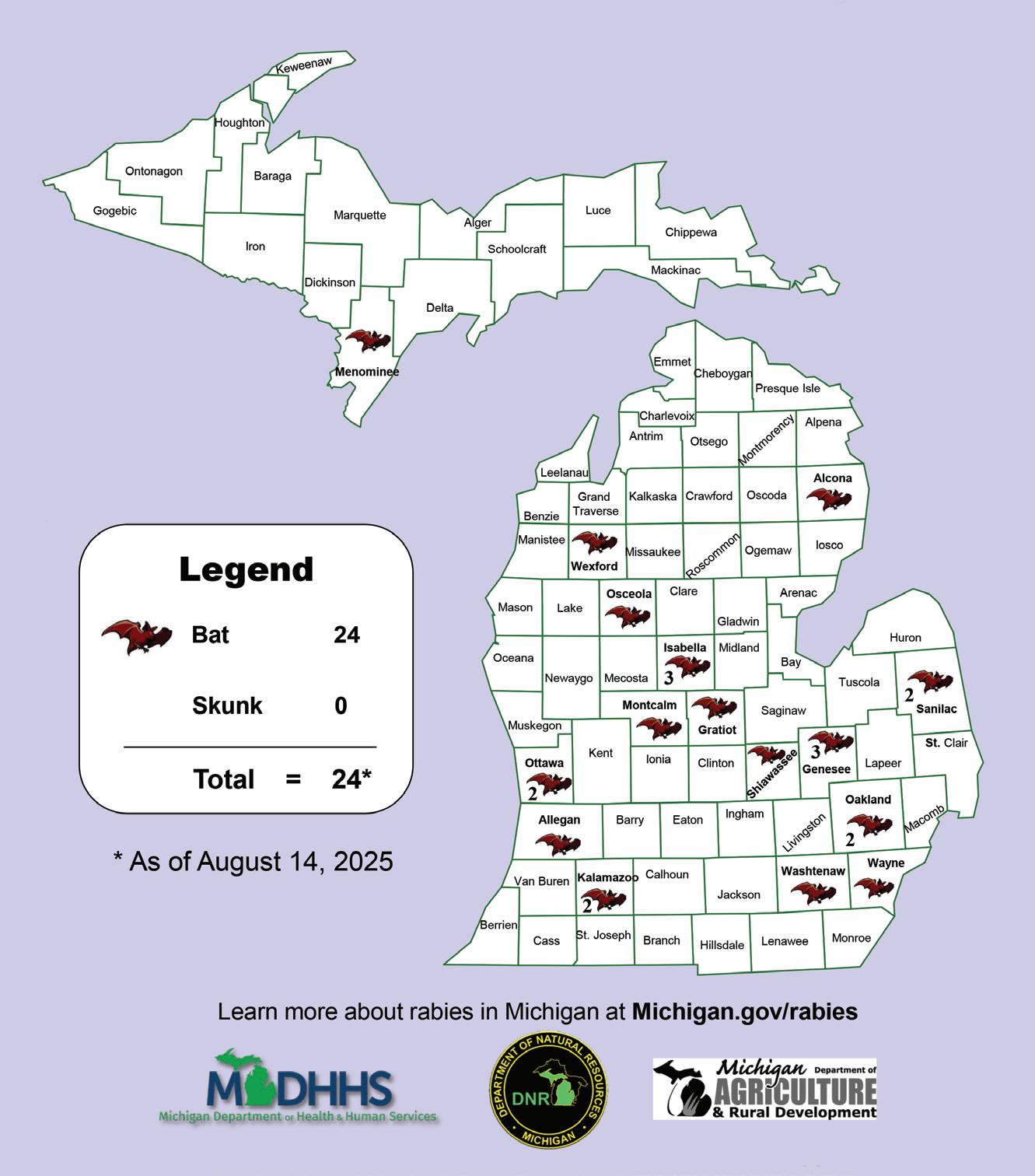
Source: michigan.gov
documented in the past, though 2025 surveillance in Michigan has shown negligible detections in these species.
According to the current Michigan Rabies Map (as of July 30, 2025) which is updated weekly, 19 rabies-positive animals have been detected, all of which
were for the current year. These cases span the Lower Peninsula counties: Antrim, Manistee, Leelanau, Berrien, Eaton, Jackson, Monroe, Oakland, Genesee, and Washtenaw. A case count of 19 around mid-year suggests that the 2025 total may approach previous annual case numbers. From the MDHHS Rabies
2025 – Rabies Positive Animals in Michigan
Overview pages: there are approximately 60 animal rabies cases statewide per year, with human rabies deaths being exceedingly rare on a national scale in large part due to vaccination programs, public awareness, and effective post-exposure prophylaxis protocols.
Harmful Algal Blooms: The MDHHS, in coordination with EGLE and MDARD, maintains an interactive Harmful Algal Bloom (HAB) Map to track confirmed cyanobacterial blooms in Michigan waters. Available at michigan.gov/ habsmap, this online resource is updated weekly from June through November and displays verified bloom reports, cyanotoxin testing results, and geographic distribution. It serves as a surveillance tool for veterinarians, especially those advising clients with recreational access to inland lakes and rivers. On a personal note, I do find the map feature to be a bit ‘touchy’ while navigating or zooming – user beware.
In short, HAB’s are rapid accumulations of cyanobacteria (blue-green algae) that thrive in warm, stagnant, nutrientrich freshwater. While not all blooms produce toxins, certain cyanobacterial species generate microcystins, anatoxins, or other hepatotoxins and neurotoxins harmful to humans and animals. Bloom appearance alone is not a reliable indicator of toxicity, though affected waters may appear green, blue-green, or paint-like on the surface. As veterinarians, we understand that dogs are particularly vulnerable to HAB exposure, often ingesting toxins through drinking affected water or grooming after swimming. Clinical signs can manifest between minutes to days and include vomiting, diarrhea, lethargy, muscle tremors, seizures, or sudden death. In these instances, clinical management is supportive and time-sensitive. Immediate rinsing and prompt care are essential. Exposure events should be reported to MDARD.
Given the recurring nature of HAB’s in Michigan and the risks to animal health, veterinarians are encouraged to use the HAB Map as a proactive client education and risk mitigation tool during peak bloom months.

Mosquito pools
Total Number of Mosquito Pools Tested 3,613 Total Number of Mosquitoes Tested
WNV-Positive Mosquito Pools
Total Number of Mosquito Pools Tested 3,613 Total Number of Mosquitoes Tested 63,412
WNV-Positive Mosquito Pools 73
JCV-Positive mosquito pools

Updated: August 8, 2025

Human cases of West Nile virus or other arboviruses reported
Human cases of West Nile virus or other arboviruses reported Highlights
• So far in 2025, one Livingston County resident has been sickened by West Nile virus (WNV).
Highlights
• So far in 2025, one Livingston County resident has been sickened by West Nile virus (WNV).
• One bird from Saginaw County and 73 mosquito pools from Bay (5), Kalamazoo (2), Kent (25), Macomb (2), Midland (16), Saginaw (13), Tuscola (4), and Wayne (6) counties have tested positive for WNV.
• One bird from Saginaw County and 73 mosquito pools from Bay (5), Kalamazoo (2), Kent (25), Macomb (2), Midland (16), Saginaw (13), Tuscola (4), and Wayne (6) counties have tested positive for WNV.
• Thirteen total mosquito pools from Bay (2), Kalamazoo (2), Macomb, Ottawa (2), Saginaw (5), and Washtenaw counties have tested positive for Jamestown Canyon virus (JCV). *Arboviruses are viruses transmitted
• Thirteen total mosquito pools from Bay (2), Kalamazoo (2), Macomb, Ottawa (2), Saginaw (5), and Washtenaw counties have tested positive for Jamestown Canyon virus (JCV).


Arboviruses: Lastly, the MDHHS’s online Weekly Arbovirus Summary provides veterinarians with timely, actionable data on arbovirus activity across Michigan for West Nile Virus (WNV), Eastern Equine Encephalitis Virus (EEEV), and Jamestown Canyon Virus (JCV). Surveillance integrates testing of mosquito pools, birds, horses, etc. in order to inform both veterinary and public health response. In 2024 for example, 167 out of 6,129 mosquito pools tested positive for arboviruses. And while 31 Michigan residents tested positive for WNV and 7 tested positive for JCV – eighteen animals ended up testing positive for EEEV across that same time period.
So far through 2025, over 3000 mosquito pools have been tested resulting in




www.michigan.gov/westnile
31 WNV-positive pools and 13 JCV-positive pools. Additionally, WNV has only been found in one bird and there have been no human cases to date. Veterinarians in affected counties should remain especially vigilant for neuroinvasive disease or unexplained illness in equine, avian, or wildlife patients.
The Arbovirus Summary underscores the importance of monitoring regional arbovirus activity, advising animal owners about species-appropriate vaccination for EEE and WNV, and educating all clients on mosquito bite prevention. Suspicious cases should be promptly sent for confirmatory testing. I’ve found that the weekly, online summary is a great example of One Health collaboration in action.

Not All Vampires Wear Capes: The Asian Longhorned Tick in Michigan
By State Veterinarian Nora Wineland, DVM, MS, DACVPM and MSU Veterinary Diagnostic Laboratory Bacteriology, Immunodiagnostics and Parasitology Section Chief Rinosh Mani, BVSc, MS, PhD, DACVM
They lurk in damp shadows, waiting for their next host. They reach out and attach themselves to the unsuspecting. They feed. They multiply. Their greed and thirst overwhelm their host, killing them. Then, they must search for more.
This may sound like the next Hollywood horror blockbuster, but it is actually an adequate (though dramatized) description of the behavior of the Asian longhorned tick (ALHT). While native to east Asia, the ALHT (Haemaphysalis longicornis) was first detected in New Jersey in 2017. Since then, they have spread to 21 other states in the eastern United States – and have now been found in Michigan.
On June 13, 2025, the Michigan Department of Agriculture and Rural Development (MDARD) announced the first detection of the ALHT in Michigan. Two nymphs of the species were found through routine tick surveillance efforts being conducted in Berrien County at Grand Mere State Park by Calvin University. Since then, additional drags have been done across Michigan by the university and other One Health partners, and a third nymph has been found in the same area.
While ticks are not unfamiliar pests to Michigan, this species has a particular appetite for livestock as well as the potential for carrying multiple reportable diseases. As with any emerging threat to animal health, we rely on your diligence. By having awareness of this tick, sending in ticks found on animals for identification and testing, advising clients on prevention strategies, and keeping an open line of communication, we can all help to protect Michigan’s domestic animals from this monster of a pest.
Know the Monster:
What ALHTs Look Like and the Specific Threats They Pose ALHTs are light brown in color and can easily be mistaken for other ticks in Michigan. While the adult female grows to the size of a pea when full of blood, other stages of the tick are very small, about the size of a sesame seed or even smaller.
The ticks have been found on various species of domestic animals (such as sheep, goats, dogs, cats, horses, cattle, and chickens) and wildlife. The tick seems to prefer feeding on animals, cattle in particular; however, the tick has also been found on people.
Even though this tick is not known to carry the bacterium that causes Lyme disease, they are capable hosts of pathogens
causing tickborne diseases that affect humans and animals, such as: Rocky Mountain spotted fever, heartland virus, and Powassan virus. However, those disease-causing pathogens have not been confirmed in ALHTs outside of a laboratory setting in the United States. ALHTs collected in other parts of the country have been found to carry Theileria orientalis, one of the pathogens that cause bovine theileriosis, which is a reportable animal disease. The signs of bovine theileriosis include weakness, fever, reluctance to walk, loss of appetite, difficulty breathing, reduced milk production, foamy nasal discharge, and abortion.
In addition to reportable diseases, the ticks have been known to form large infestations on one animal, causing stress and reducing an animal’s growth and production. Female ALHTs can reproduce without mating and lay up to 2,000 eggs at a time. A severe infestation can lead to fatal blood loss.
Find its Lair: How to Submit Ticks for Identification
Knowing where the monsters are or are not is critical. By submitting any tick that looks unusual or different for identification and testing, it can help create a clear understanding of exactly what is happening across Michigan.
You can submit ticks to the Michigan State University Veterinary Diagnostic Laboratory (MSU VDL) for identification and pathogen testing services. The MSU VDL is experienced in identifying ALHT and routinely performs PCR tests to identify pathogens carried by ticks for a fee. Submit only ticks removed from animals or areas frequented by animals. The MSU VDL does not test specimens removed from humans. Please visit animalhealth.msu.edu for more information.
Also, expert tick identification is available for free through the Michigan Department of Health and Human Services. You can email a picture of the tick to mdhhs-bugs@michigan.gov or submit a tick by mail to MDHHS for identification. Detailed instructions for submissions can be found at michigan.gov/emergingdiseases/ticks
More than Garlic: Prevention Strategies
Beyond submissions and identification, having a multifaceted approach to managing ALHTs and other species of ticks is essential to help minimize their impact. Some of these strategies include:
• Performing a tick check. Look around an animals’ eyes, ears, limbs, tail, and toes for any ticks. If a tick is found, safely remove it as quickly as possible.

“Knowing where the monsters are or are not is critical. By submitting any tick that looks unusual or different for identification and testing, it can help create a clear understanding of exactly what is happening across Michigan.”
• Practicing tick prevention on pastures and lawns. Keep tall grass trimmed back along buildings and property edges, mow lawns, remove brush and leaf litter, and create mulch barriers to help make spaces tick-safe.
• Using tick treatments. When modifications to the environment prove inadequate for controlling ticks, acaricides (pesticides specifically designed to kill ticks and mites) can be used. It is important to treat all animals in a herd simultaneously and to strictly follow all label instructions regarding pesticide applications, including withdrawal periods and retreatment intervals.
Overall, if you have any questions regarding the ALHT, other tick species, or their management, please contact MDARD at 800-292-3939.
Alert the Townsfolk: Spread Awareness and Report Suspect Cases
As MDARD continues to work with the MSU VDL, academic partners, local health departments, and other state and federal agencies to conduct additional surveillance around the state, your contributions to this effort are invaluable to discovering how
More Monsters for Your Nightmares
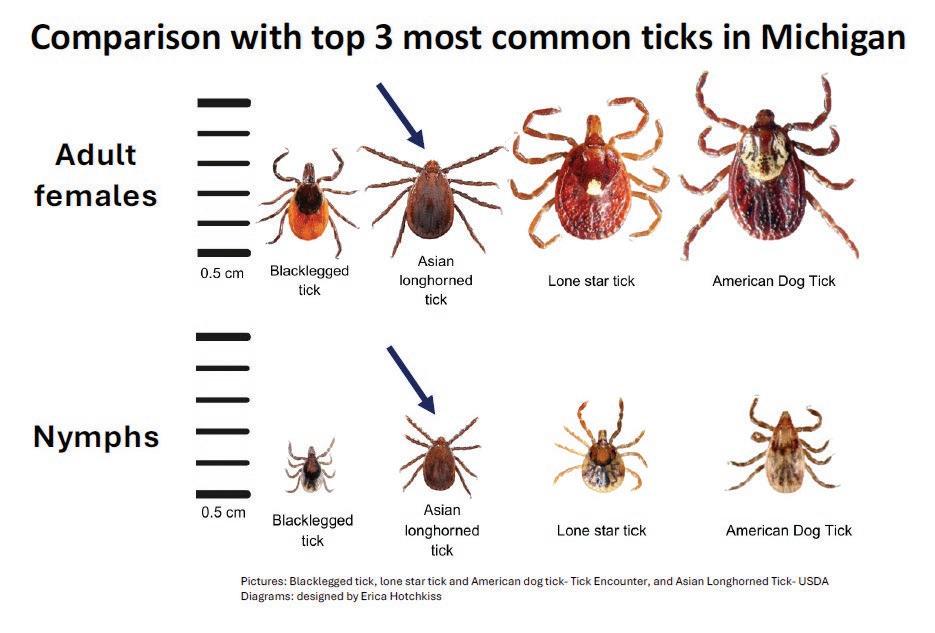
established the tick is in the state, guiding our educational efforts, and informing the state’s response.
By working together, we can turn that Hollywood blockbuster from horror to heroes and help keep Michigan’s domestic animals safe.

On November 24, 2024, the United States Department of Agriculture’s (USDA) Animal and Plant Health Inspection Service announced the detection of New World screwworm (NWS) in a cow in the southern Mexico state of Chiapas, close to the border with Guatemala. In response, the importation of several livestock species from Mexico was prohibited, and efforts began to disperse sterile flies to prevent further spread northward. Subsequently, there were additional detections throughout southern Mexico, and some were even closer to the U.S./ Mexico border – including a detection reported on July 9, 2025, in Veracruz, about 370 miles south of the border.
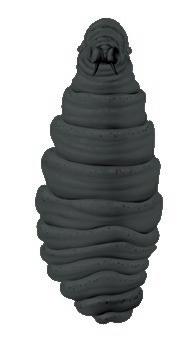
With NWS not being detected in animals from the United States or Michigan, the problem seems deceptively far away. However, this is another invasive pest that could pose a very present threat to the state’s domestic animals.
NWS are fly larvae that infest the living tissue of warm-blooded animals, causing infection. While cattle are an ideal host species because they are often raised outside, NWS can affect any warm-blooded animal, including pets and (in rare cases) people. Occasionally, the larvae also affect wild and domestic bird species. NWS most often enter an animal through an open wound and feed on the animal’s living flesh, causing serious damage to tissue that could be fatal. Screwworm infestations are difficult to detect at first. Be sure to check animals for draining or enlarging wounds, signs of discomfort/irritation, and the smell of decay. Also, look for screwworm larvae or eggs, which are creamy white in color and deposited near the edges of superficial wounds.
The presence of confirmed cases in a bordering country and the capability of these insects to fly or be transported on animals (either through domestic animals or wildlife) underscores the need to be aware of this disease. If you suspect an animal is infected with screwworm, please contact the Michigan Department of Agriculture and Rural Development (MDARD) immediately at 800-292-3939 (daytime) or 517-373-0440 (after-hours) as this is an emergency reportable animal disease. As with any reportable disease, your vigilance is key to keeping Michigan’s domestic animals healthy and safe. Please do not hesitate to reach out if you have a suspect case.
MDARD is continuing to monitor the situation and is committed to working with federal partners to raise awareness about NWS and stop its spread.
For more information on NWS in animals, USDA’s five-pronged plan for controlling the spread, and guidance for veterinary health professionals, please visit the USDA’s website.


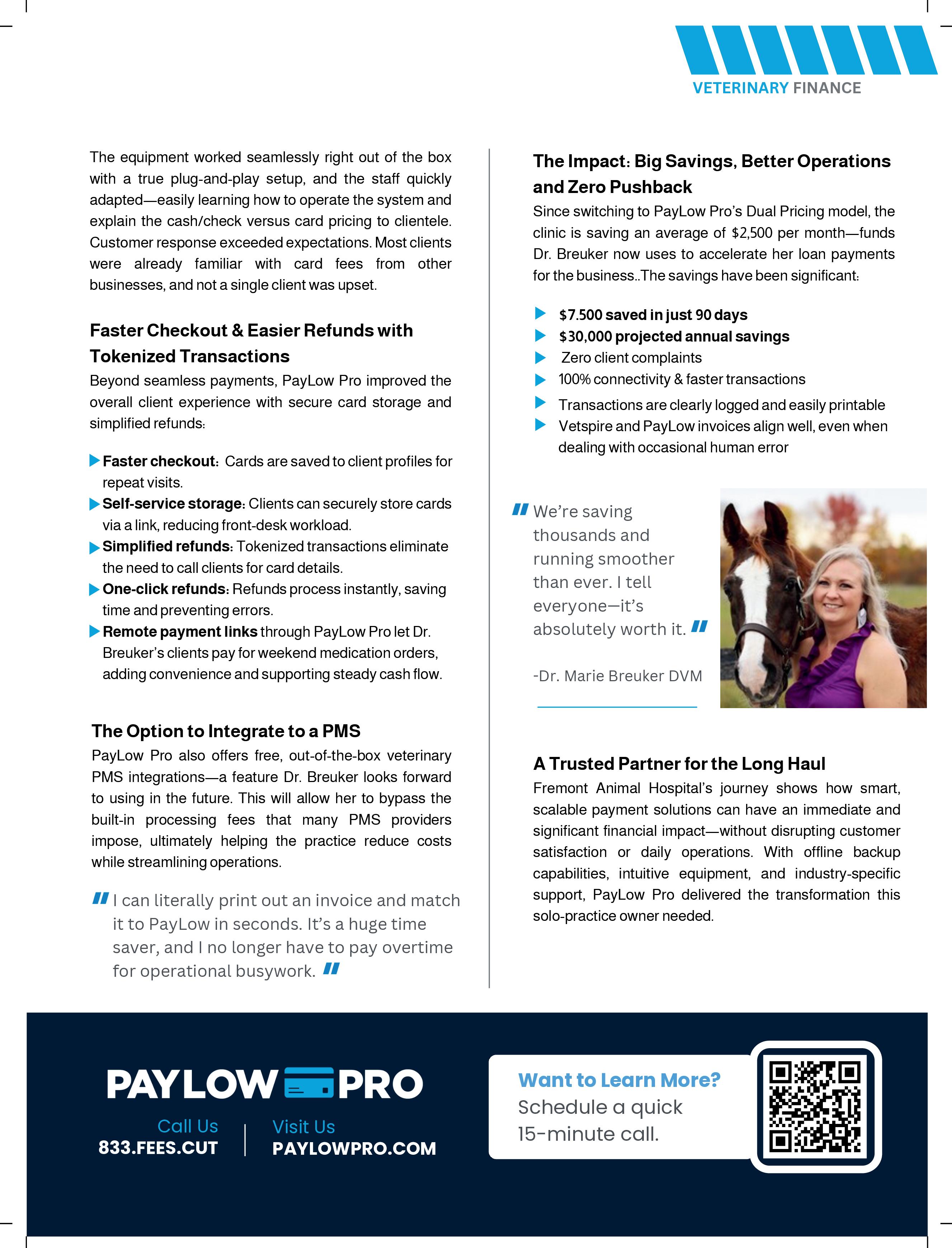



Contact Dr. Shelly Zacharias at 317-437-7334 or szacharias@acibiosciences.com
WE ARE LOOKING FOR:
Clinics interested in clinical trial participation.
General practitioners and boarded surgeons performing TPLO procedures.
BENEFITS:
$5,000 bonus when you enroll 12 cases in 16 weeks.
Enrolled dogs receive $1,000 towards surgery. Blood work included with screening.


Rabies in Michigan:
A Shared Fight Across Species and Sectors
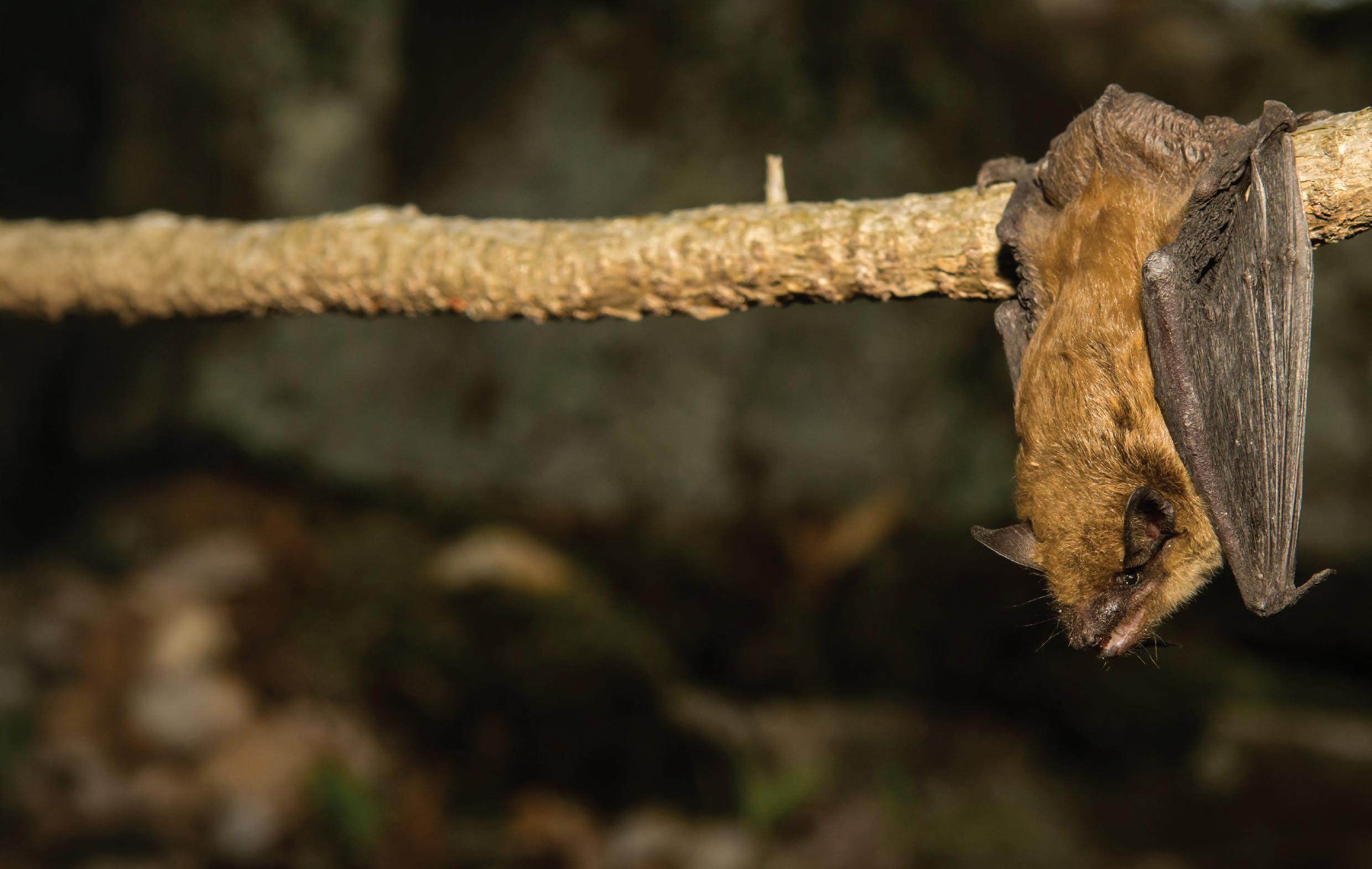
By Stacey Kukkonen
As Michigan wraps up the summer season, state health officials are urging continued awareness about rabies, a rare but deadly disease that annually sees its highest activity during the warmer months and into early fall. “We have very safe and effective vaccines that, when given ahead of time, serve as a strong barrier between wildlife rabies and people,” said Dr. Mary Grace Stobierski, State Public Health Veterinarian at the Michigan Department of Health and Human Services (MDHHS).
Rabies, a viral disease that can affect any mammal, remains a rare but real threat in Michigan. While the vast majority of cases in the state are found in bats, skunks and other wild/domestic animals can be found to be rabid too. The impacts on domestic animals and humans can be devastating if prevention lapses.
“August is typically our busiest month, but this past year, we had an unusual and tragic case of rabies in a person in the winter,” she said.
In January 2025, a human rabies death occurred in Michigan – a situation that hasn’t occurred in the state in nearly two decades. The Michigan resident died after contracting rabies through an organ transplant received in Ohio in December 2024, according to a multi-state investigation by MDHHS, CDC, and Ohio health officials, who confirmed the transmission originated from the donated organ. The tragedy served as a sobering reminder of rabies’ reach and the need for constant vigilance, something Dr. Stobierski and her team work tirelessly to maintain.
In addition to the efforts being done at MDHHS, responding and tracking cases of rabies in animals is also essential to controlling the disease. The Michigan Department of Agriculture and Rural Development (MDARD) responds to all reports of rabies in domestic animals. “Rabies is one of the reportable animal diseases we respond to in order to protect both animal and human health,” explains Dr. Nora Wineland, the State Veterinarian of Michigan.
As a zoonotic disease expert, Stobierski works across human, animal, and environmental health sectors to monitor and respond to rabies cases. The MDHHS state laboratory in Lansing is the only facility in Michigan that can confirm rabies through diagnostic testing. When a positive case is identified, whether in a wild or domestic animal, the lab notifies the submitting party immediately. “If it’s a veterinary clinic that submitted the animal, they’re contacted same day with the results,” said Stobierski. “We then advise them on next steps, including quarantine if needed. If a person was exposed, their physician and local health department are also notified to begin evaluation for post-exposure treatment.”
Veterinarians are key partners in rabies surveillance. Not only are they encouraged to educate clients about timely vaccination, especially for cats, dogs, ferrets and livestock, but they are often responsible for the humane euthanasia and submission of animals for testing. “We really emphasize that veterinarians are best qualified to do this
Rabies in Michigan

work safely and humanely,” Stobierski said. “Whether it’s a suspect rabid bat or another suspect animal, veterinarians are uniquely equipped to manage the situation with care, and we rely on them to help us get those specimens to our lab.”
Wineland noted when rabies is confirmed in an animal, MDARD works closely with the party that submitted the sample for testing, the local health department, and/or the exposed patient to determine if any domestic animals were exposed.”
Stobierski added that MDHHS strongly encourages veterinarians to work collaboratively with their local health departments and animal control agencies to ensure prompt and safe submission of animals suspected of having rabies.
At the same time, understanding which animals carry and transmit rabies is crucial for both veterinary and public awareness. While rabies is found across the state, the most common carriers, bats, can appear in urban, rural, and suburban areas alike, she said. “Bat rabies is everywhere,” said Stobierski. “We also occasionally see cases in skunks, foxes, and domestic animals. Through molecular typing, we’ve found that in Michigan, skunk strain rabies is the most common strain found in rabid terrestrial animals which is different than what’s seen in other states.”
Wineland added that bats remain the leading carriers, but skunks are a significant source in southeastern Michigan. “Over the past five years, domestic cases have primarily been confirmed in cats and dogs,” she said. “So far in 2025, however, no cases of rabies in domestic animals have been reported.”
Veterinarians or animal control agencies that suspect rabies in an animal should submit samples to the MDHHS Bureau of Laboratories. Detailed submission instructions, including how to order and store testing kits can be found on
the laboratory’s website. Stobierski recommends always keeping a kit on hand. The lab offers rapid turnaround. “If the specimen arrives by 9 a.m., results are typically available by mid-afternoon,” she noted.
While testing plays a vital role in response, prevention remains the cornerstone of Michigan’s rabies strategy. Vaccination is still the most effective prevention tool. “We recommend that any pet living in a home should be vaccinated,” she said. “And that includes indoor-outdoor cats.”
Wineland reinforced this point, reminding veterinarians and pet owners of the legal requirements. “Michigan law requires all dogs over six months of age and ferrets over 12 weeks to be vaccinated against rabies by a licensed veterinarian,” she said. “There are no exemptions under state law.”
Beyond vaccination, MDHHS urges the public to avoid contact with wildlife, never handle unfamiliar animals, and contact a veterinarian or healthcare provider immediately if exposure is suspected. Wineland added that even indoor pets should be kept current on vaccinations. “A wild or stray animal could
MICHIGAN RABIES ASSESSMENT: WHEN AN ANIMAL HAS BEEN EXPOSED
Animal Species Exposed1
Exposed dog/cat has documentation of current OR previous rabies vaccination 2
1. Revaccinate immediately, and 2. Have owner observe for 45 days, and 3. Euthanize and test dog/cat/ferret/livestock for rabies if it becomes ill with signs suggestive of rabies, or dies during observation period.
Is the biting animal available for testing?
Exposed ferret/livestock has documentation of current rabies vaccination 3 YES NO
Immediately euthanize exposed dog/cat/ferret/livestock *
* If owner refuses euthanasia, see options below
OPTION 1
• Within 96 hours of exposure: Rabies vaccine booster, and strict quarantine for 4 months for dogs and cats, 6 months for ferrets and livestock.
• Euthanize and test dog/cat/ferret/livestock for rabies if it becomes ill, with signs suggestive of rabies, or dies during quarantine period.
OPTION 2
(Cats and dogs only) Consult the Michigan Department of Agriculture & Rural Development1 regarding the possibility of using serologic monitoring for rabies antibodies.
[1] For questions about exposure:
1. Call your veterinarian, animal control office and/or local health department.
Send to MDHHS Laboratory for rabies testing
Vaccinate dog/cat/ferret/livestock against rabies

2. If they are unavailable, during business hours, call the Michigan Department of Agriculture and Rural Development (MDARD) at (800) 292-3939 OR the Michigan Department of Health and Human Services (MDHHS) at (517) 335-8165. 3. After 5:00 PM and weekends, call MDARD at (517) 373-0440 OR MDHHS at (517) 335-9030.
[2] Current vaccination means administered by a veterinarian within 1 or 3 years from previous vaccination, depending on vaccine used. An animal is considered “previously” vaccinated against rabies if the owner has documentation showing that a licensed veterinarian has ever administered a vaccine product approved for use in that species.

still find its way indoors, so keeping pets up-to-date serves as an important barrier of protection,” she explained.
In partnership with the MDARD and the U.S. Department of Agriculture Wildlife Services, MDHHS is also involved in additional rabies surveillance projects, particularly in neurologically abnormal wildlife that haven’t had confirmed exposures.
For veterinarians looking to to stay current on vaccines and protocols, the Emerging Diseases section of the MDHHS website offers detailed flowcharts and step-by-step
guidance for managing rabies exposure in both animals and people.
“These protocols cover 90 percent of common rabies situations,” Stobierski said. “It’s all about prevention and early action. The more we all stay informed, the safer our communities will be.”
Learn more at michigan.gov/rabies.
Request tests and submission kits, and more from the Bureau of Laboratories: www.michigan.gov/mdhhs/doing-business/ providers/labservices.

WILD ANIMAL (MAMMAL) OWNED DOG/CAT/FERRET (Vaccinated or Unvaccinated)
Euthanize and test if appropriate species 8
STRAY DOG/CAT/FERRET 6 (Vaccination status unknown)
Is animal showing signs of rabies?
owner want animal? Is animal showing signs of rabies?
Euthanize and test
Confine animal for 10 days from the day of the bite * Euthanize and test
Test if animal becomes ill, with signs suggestive of rabies, or dies during confinement
At
Confine animal for 10 days from the day of the bite. If it remains healthy, it is considered rabies-free at the end of confinement. *
[4] Regardless of rabies vaccination status. Though rabies in animals vaccinated against rabies is rare, vaccinated animals can still develop rabies.
[5] Livestock and exhibit animals that bite people are assessed individually (a separate zoo animal rabies flowchart is available @ www.michigan.gov/rabies). In all instances of other domestic animal species, contact the Michigan Department of Health and Human Services (MDHHS) at (517) 335-8165 OR notify the Michigan Department of Agriculture and Rural Development (MDARD) at (800) 292-3939.
[6] State law requires that all stray dogs be reported to animal control within 48 hours of a person taking possession of the animal. Ensure animal has been reported.
[7] Contact local animal control office where the animal is located for required hold times.
Confine for required holding time, if applicable 7, then euthanize and test
Confine animal for 10 days from the day of bite. If it remains healthy, it is considered rabies-free at the end of confinement. *
Test if animal becomes ill, with signs suggestive of rabies, or dies during confinement
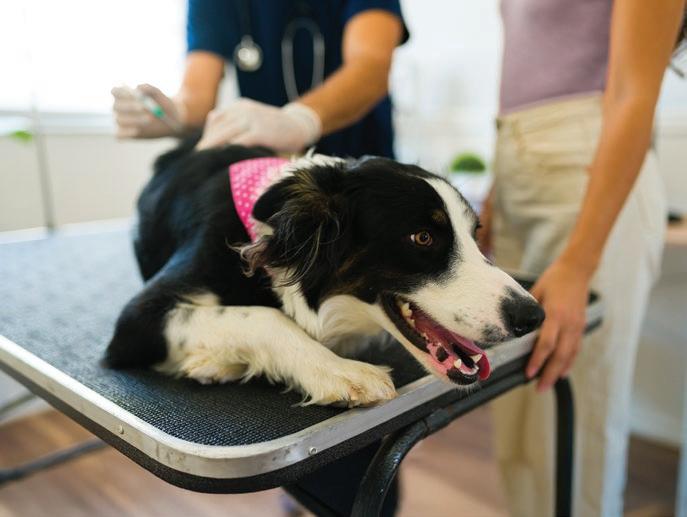
Rabies in Michigan: What You Need to Know
A quick guide from the Michigan Department of Health and Human Services
What is rabies?
A deadly viral disease that affects the brain and spinal cord. It’s most often spread through the bites or saliva of infected animals.
Who’s at risk?
Humans, pets, and livestock. In Michigan, bats are the most common carriers, followed by skunks.
Recent data:
As of August 2025, 20 rabid animals have been confirmed in Michigan and most were bats. Southeastern Michigan has seen more skunkrelated cases in previous years.
Signs of rabies in animals:
• Excessive drooling
• Aggression or unusual behavior
• Paralysis or staggering
For human exposure:
• Wash the wound with soap and water
• Seek medical attention immediately
• Post-exposure prophylaxis (PEP) may be needed
Testing & quarantine:
• Only brain tissue testing can confirm rabies
• Pets that bite are often quarantined for 10 days
[8] The animals listed above are rarely infected with rabies and have not been known to transmit rabies to humans. These species will not be tested except by special arrangement with MDHHS at (517) 335-8165. After 5:00 PM and on weekends, dial (517)335-9030.

• Wild or exotic animals may be tested or assessed based on risk
Prevention strategies:
• Keep pets up to date on rabies vaccines
• Avoid handling wild animals
• Bat-proof your home

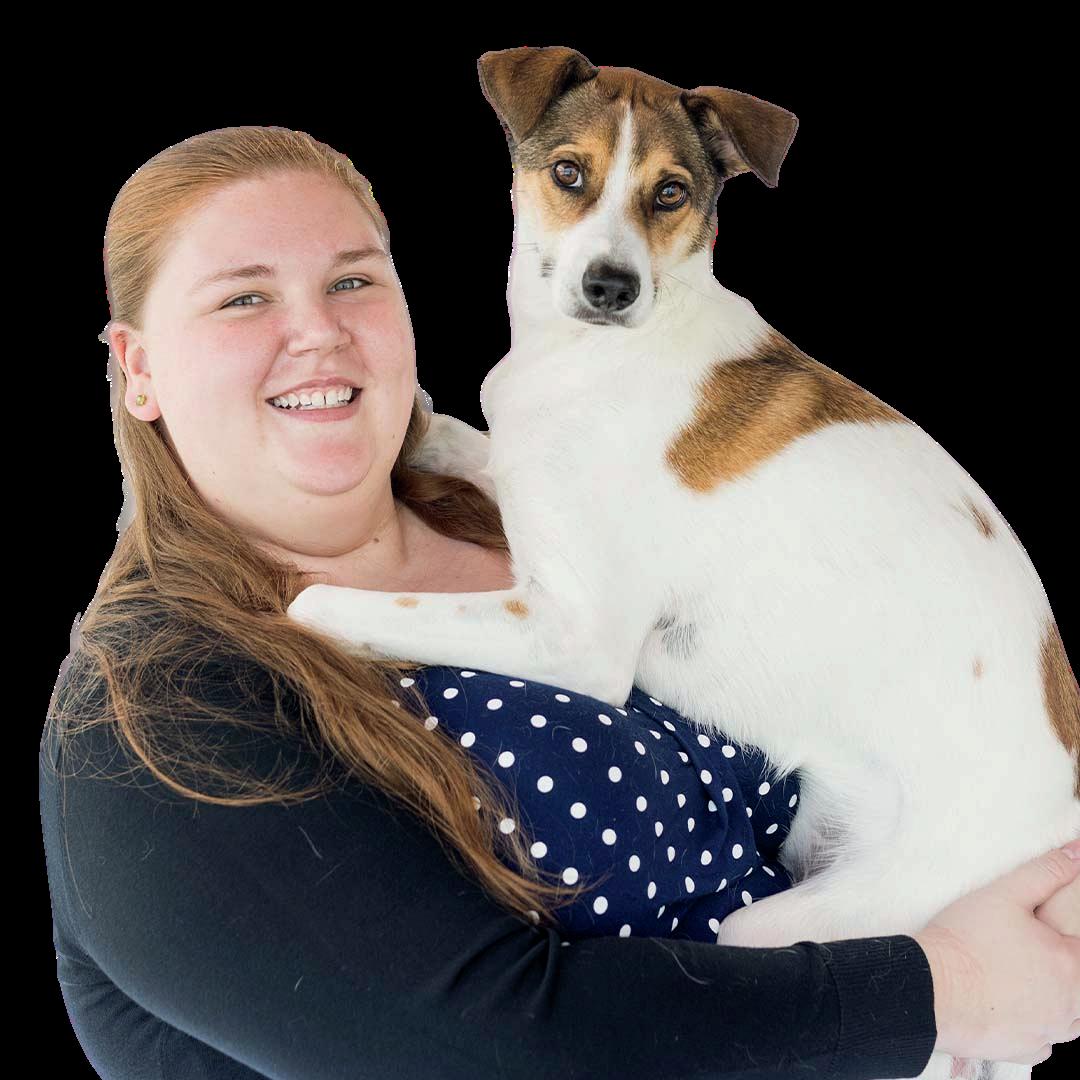
MedVet Commerce Specialty Services
24/7 Emergency Medicine
Including endoscopy-trained doctors!
Critical Care
Monday - Thursday
Neurology & Neurosurgery
Monday - Thursday
Surgery (Increased Availability!)
Monday - Friday, plus on-call support
Ultrasound
Available Monday - Thursday, with select on-call support Friday - Sunday

Scan to refer a patient or learn more about MedVet Commerce


Bernadette Prettegiani, DVM, Limited to the Practice of Surgery
DEI Committee
By Jann Annette Angell DVM, MS APRN, AGPCNP-BC, MS
Did you know that ‘Boosho’ is hello in the Ojibwe language, part of the Algonquian language family?
October 13, 2025 is National Indigenous Peoples Day. It is well worth recognizing the day by visiting one of many reservations in Michigan and gain insight into another culture so close to home. Native people were here tens of thousands of years before others immigrated to this country and brought their culture. We all have benefited from those who came before us. Now we are benefactors to the next generation; hopefully we are and have been good stewards to their sacred land.
There are nearly 575 Federally recognized Indian tribes in the United States. Nearly 70% of the AVMA membership have reported their ethnicity. It is surprising that only 288 American Veterinary Medicine Association members have reported their race/ethnicity as American Indian/Alaska Native/Indigenous.
It is imperative that veterinary medicine is a reachable goal for all people who would like to either be clinicians, work in food safety, industry, research, or teaching. Exposing young children to this valuable profession at an early age can encourage them to seek a career they never thought was attainable to them. With so few Indigenous veterinarians, there are not enough veterinarians near or on reservations to be good role models to a young generation. By diversifying our veterinary workforce, more Indigenous people will be able to realize veterinary medicine as a career.
So, I suggest you visit Ziibiwing Cultural Center, a museum, on the Chippewa Saginaw Indian Reservation in Mt. Pleasant in the heart of Michigan. Self-guided tours of the Great Lakes Anishinaabe Culture are available. Also, during the summer and fall, numerous Pow Wows are open to the public in the state. You may be invited to participate in an intertribal dance, or sample delicious Indian fry bread. I invite you to step into another community and see, feel and hear the richness of their culture.
The Diversity, Equity and Inclusion Committee of the Michigan Veterinary Medicine Association would like to welcome all veterinarians, veterinary nurses, office managers, and other personnel to the association and especially those who have been underrepresented. It is not always easy or comfortable to start a new job or be part of an organization or group. People represent generational backgrounds that are as intricate and diverse as our universe. It is up to all of us to make newly hired people or new members feel welcome and accepted as they navigate through a new workplace that could be a career move for decades. One way is to welcome people into a positive, supportive environment through open communication.
We all have a unique communication style. We understand this, and would like to provide different ways to communicate

that may be more comfortable to some people. We all have a veterinary degree, license, or an interest in animals, but the path to this veterinary career is different for every person. Our households, cultures, and parental styles, are all varied. Some come from single parent households, some from multigenerational households. Regardless of your background and cultural heritage, we all come from diverse backgrounds and should respect this genealogical treat.
Although you may feel as if you are not represented, there are probably others who feel the same way you do. No matter what style of communication you find valuable, it is important to just communicate. We all have something valuable to share amongst the members, associates, and clients. We are a microcosm of the world outside of our workplace doors.
Encouraging communication, appreciation and compassion is essential for supporting coworkers. Appreciation can be expressed in many ways, such as a hand written letter, a small gift for a job well done, or perhaps attending a cultural event that is special and significant to a coworker. For instance, if I had celebrated Diwali, The Festival of Lights, my entire life, I would be most appreciative of my colleagues if they remembered that day. John F. Kennedy said “We must never forget that the highest appreciation is not uttering words, but to live them.” Finally, be compassionate. Our journey leading to this profession took years and for many a decade of our lives. Be kind. What you say and your actions will be remembered by those you work with forever.
Ziibiwing Cultural Center in Mt. Pleasant, Michigan. Source: meetmtp.com
Legislative Update: vetPAC
Please consider making a personal contribution to the MVMA’s Veterinary Political Action Committee (vetPAC).
Issues related to veterinary medicine have been at the forefront of public policy debates in Michigan, and we need your help to influence the policies that will impact the practice of veterinary medicine in Michigan. The current political infighting about the state budget has slowed other legislation. However, that could change very quickly.
Over the years, the MVMA vetPAC, through contributions from MVMA members, has achieved victories on behalf of Michigan veterinarians as well as the clients and patients they serve. We currently face nearly a dozen bills involving the practice of veterinary medicine or animal welfare. These include proposed legislation that represents both additional challenges to veterinary medicine to which MVMA is opposed as well as potential enhancements we support. A full listing can be viewed on the MVMA website. www.michvma.org/docket
While this request is voluntary, I encourage you to join me in contributing to vetPAC. Since decisions made by state lawmakers can have such an enormous impact on your practice and the entire veterinary community, it is critical that our collective voice be heard. And the vetPAC helps us be heard. Please take a moment to make your contribution online ( QR code) or send a personal check made payable to vetPAC to the MVMA office.
Thank you in advance for your generosity and support. If you have any questions regarding vet PAC, please contact CEO Bonnifer Ballard at (517) 347-4711 or




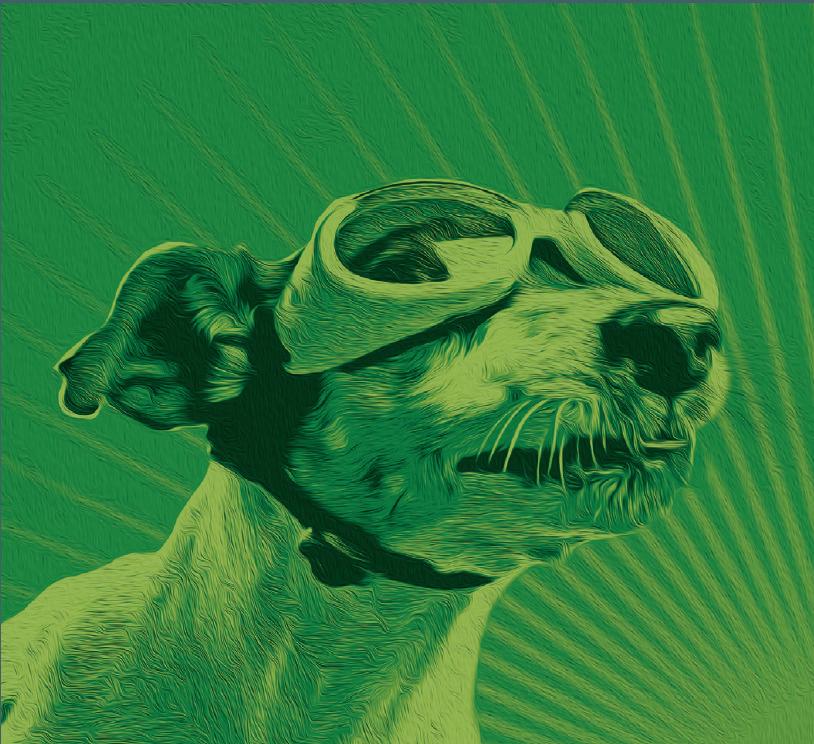

Michigan Veterinary Medical Association Political Action Committee
Equine Practice Committee
We’re heading into the homestretch of the equine busy season –end of summer county fairs, horse shows, and events are abundant and equine practitioners throughout Michigan are seeing sniffles and fevers! The Equine Practitioners Committee encourages horse owners to be up to date on their vaccinations for preventable diseases prior to travel, as well as the core vaccine sets recommended for all horses. We have also seen an uptick in Potomac Horse Fever cases this year.
Additionally, the Equine Practitioners Committee has been hard at work this summer coming up with ideas for continuing education events for practitioners of all levels! While final details are still being ironed out, keep on the lookout for upcoming social and educational events which will be held in the Fall and early Spring.

Leadership Development Committee
The Leadership Development Committee met virtually on Tuesday, April 29, 2025. The Committee’s focus is to provide consistent, talented leaders for the organization at the state and national level. The committee discussed and reviewed our Standard Operating Procedures and Board Policies. The committee also discussed plans to host the Power of Ten Leadership Academy for 2026.
The committee is currently working to accumulate nominations for district directors to take open seats on the Board of Directors. They are also working to fill the Second Vice President position for the Executive Board. The district directors serve a three-year term beginning January 1, 2026. Any member in good standing may self-nominate or nominate a colleague who is also a member in good standing. If you would like to nominate a MVMA member or yourself for any position, contact Dr. Julie Cappel at jacappeldvm@gmail.com or contact the MVMA office. Anyone interested in joining the Power of Ten Leadership Academy, please reach out to the MVMA office or Dr. Cappel.
If you want to learn more about the MVMA, POTL, or the leadership development committee, please reach out!
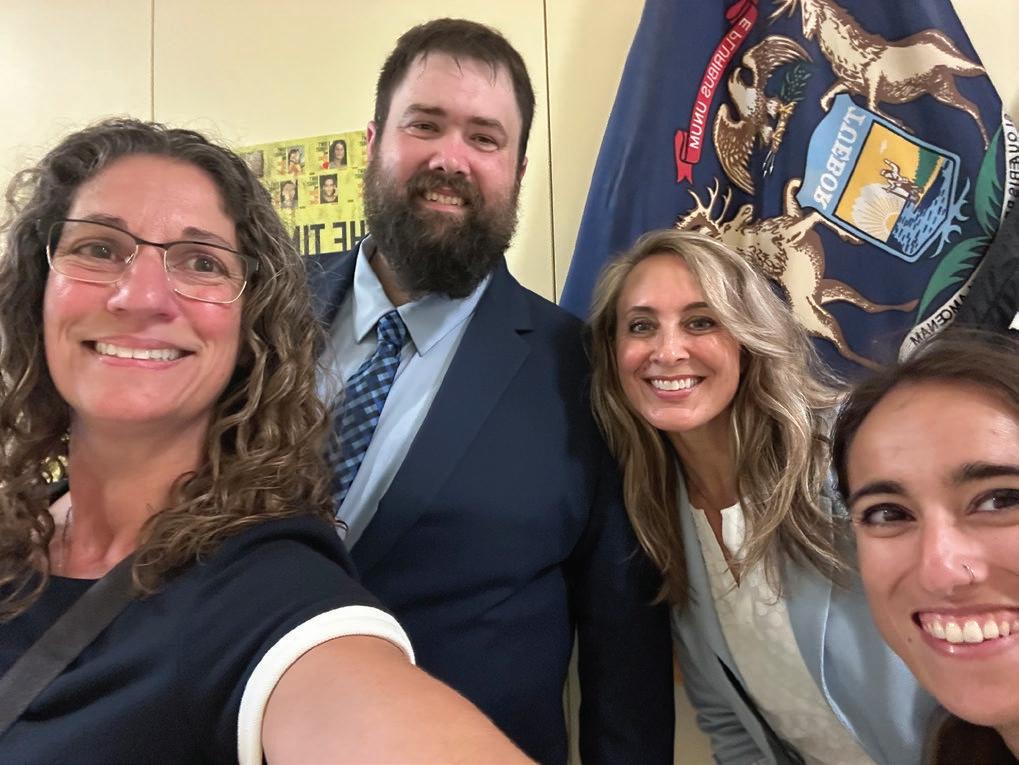
We are always looking for strong leaders to join our association. The next committee meeting will take place on Monday, October 27, 2025 at 6:00 pm.
If you want to learn more about the MVMA, POTL, or the leadership development committee, please reach out! We are always looking for strong leaders to join our association.
Large Animal Medicine in Education: Don’t Forget About Us!
By Erin Howard DVM, Medical Director, Baker College of Jackson – Veterinary Technology

Growing up, I dreamt of becoming a jockey – all thanks to the Thoroughbred book series and hanging around horsey friends who kindly lent me their extra equines for this horseless kid to use for riding practice, 4H, and showing. As I grew up (literally and figuratively), I realized that the horse racing world was not for me, and focused on veterinary medicine instead. Through many twists and turns, this horse girl turned into more of a cow-and-goat loving doctor and spent a fair amount of time in school, and then in practice, treating large animals. Enter COVID, and an opportunity to make a 90 degree turn and enter Veterinary Technology Education at Baker College. Not what I had on my BINGO card five years ago, but it has turned into one of the best decisions that I’ve made in my career thus far. One of the best parts? This large animal doc at heart gets to help teach veterinary technology students all about large animal species and how to work with them.
In our Introductory Large Animal course, our students start from scratch with learning common breeds, physical exam parameters, basic husbandry, restraint, and common procedures including venipuncture and vaccination for cattle, horses, goats, sheep, camelids, and poultry. What they learn in the classroom is then practiced in the field using various (and generous) partner farms and facilities to give hands-on

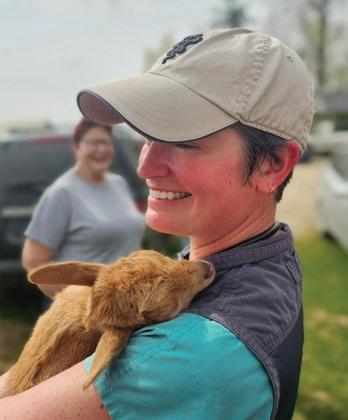
experiences with small ruminants, cattle, and horses. Large animal education follows our students through their entire curricula however, as they dive into large animal disease processes in Pathology and therapeutic/treatment options in Pharmacology. They also learn about how much production animal medicine and agriculture overlaps with human health.
Many of the students that we teach have a strong interest for small/companion animal related medicine, and will likely enter those fields. Several, however, have backgrounds that may be like mine – growing up with a love of large animals, and hoping to find a way to combine that passion with their professional career choice. Fostering that connection to our large animal species, while teaching all our students information that is critical in maintaining global One Health principles and agriculture, are just a few reasons why continuing this line of education in a largely small animal dominated profession is so important.
As a practitioner, there are so many ways to become involved in education, all the way from kindergarten to vet med/vet tech. No matter your area of interest, look for those young people who have a love for the same things that you do – and help to show them why you love it so darn much. Who knows, they just may become one of my students someday.
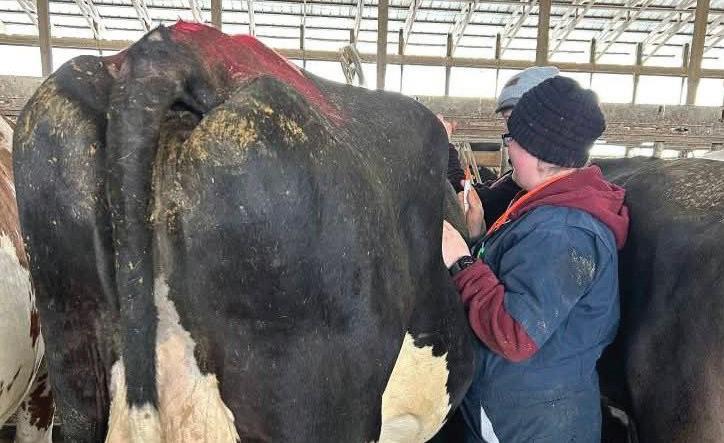
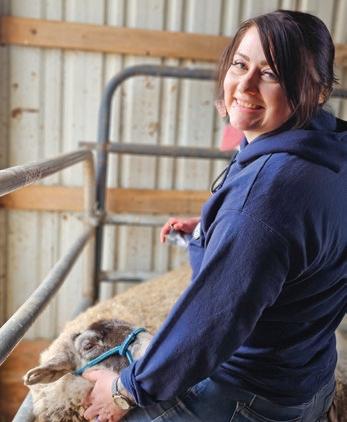
AVMA Update
House of Delegates Meeting
The AVMA House of Delegates (HOD) was in session July 17–18 in conjunction with AVMA Convention 2025 and the 40th World Veterinary Association Congress, in Washington, DC. The AVMA proudly has more than 108,000 members. There were 7,800 convention attendees.
The HOD considered seven resolutions. All resolutions were revisions of current policies. Not only do policies provide guidance to the veterinary profession, they also provide a message from which the Association can advocate for the profession on legislation, regulation, public outreach, and more. AVMA policy is approved by the Board of Directors acting on recommendations from AVMA entities, or by the HOD acting on resolutions submitted by the Board, the House Advisory Committee (HAC), any organization represented in the House, an HOD reference committee, or a petition of AVMA members.
• Resolution 9 – Pediatric Sterilization of Dogs, Cats, and Rabbits – Passed as amended
• Resolution 10 – Therapeutic Pet Food Health Claims –Passed as amended
• Resolution 11 – Sow Housing – Passed as amended
• Resolution 12 – Declawing of Domestic Cats –Passed as amended
• Resolution 13 – Pain in Animals – Passed as amended
• Resolution 14 – Model Veterinary Practice Act (MVPA) – Passed
• Resolution 15 – Mitigating Hazards in the Veterinary Workplace – The House approved a motion by a 2/3 majority to waive the prior notice provision. Passed as amended.
Hundreds of veterinary professionals came together from across the nation to meet with members of Congress and their staff to advocate for legislation important to veterinarians. In four hours, 364 people, including 117 veterinary students, attended 274 meetings with law makers and staff of all 50 states, DC, and Puerto Rico. Michigan had seven veterinarians, five students, and MVMA CEO Bonnifer Ballard take part. Michigan’s team met with both of our Senators and six of our Representatives.

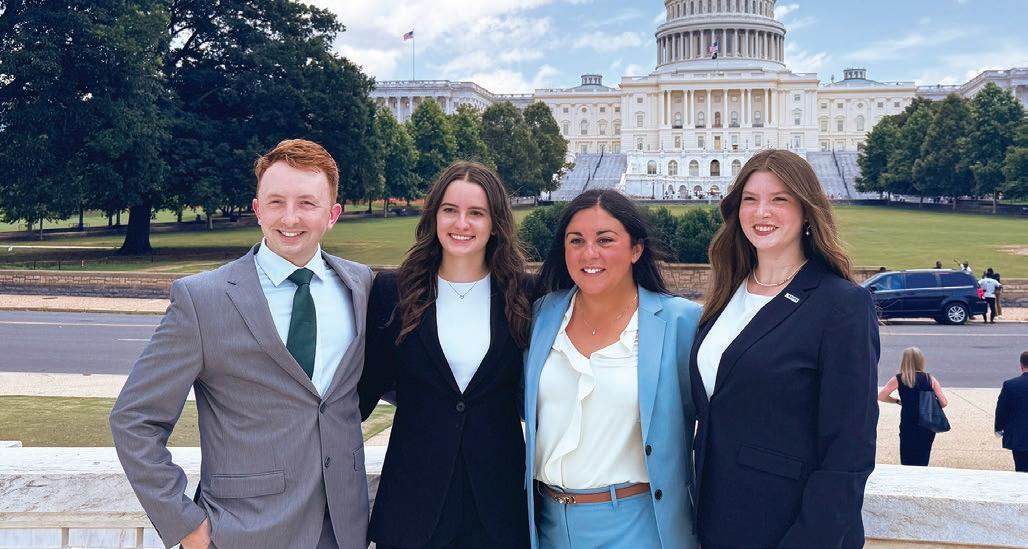
We discussed the Combating Illicit Xylazine Act (H.R. 1266/S. 5455) that targets the emerging threat of illicit xylazine, while preserving veterinary access to the animal sedative. We also discussed the Rural Veterinary Workforce Act (H. R. 2398/S. 1163), formerly known as the Veterinary Medicine Loan Repayment Program (VMLRP) Enhancement Act, intended to increase access to veterinarians in veterinary shortage areas by assisting with educational debt, aligning tax code with human and other healthcare professions’ award funds, and maximizing the funding allocated to the highly successful VMLRP. We were so successful, the Combating Illicit Xylazine Act added two additional co-sponsors within just 24 hours.
Several elections took place at this HOD session. The position of President-Elect was contested between former Vice President Dr. Jennifer K. Quammen of Walton, Kentucky, and outgoing District 3 Director, Dr. Mary Ergen from Tennessee. Dr. Quammen was elected President-Elect and will succeed Dr. Michael Q. Bailey as AVMA President for the 2026–2027 association year.
Drs. Robert Knapp and Elizabeth Boggier launched their respective campaigns for 2026-2027 AVMA President-Elect and 2026-2028 AVMA Vice President.
The Board of Directors welcomed Dr. Libby Todd (District 3) and Dr. James Webber (District 5, Michigan's district). Dr. Sandy Willis (District 11) was elected as Chair of the Board of Directors. Dr. Richard Sullivan (District 10) was elected Vice Chair.
The HOD re-elected two members, Drs. Diana Thome and Stuart Brown, as well as new member Dr. Christopher Gargamelli. to the House Advisory Committee (HAC). Drs. Lindy O’Neal and Diana Thome’ were elected Chair and Vice-Chair of the HAC, respectively.
The following council members were elected:
• Council on Biologic and Therapeutic Agents Representing Epidemiology: Dr. Malathi Raghavan
• Council on Public Health Representing Human Health: Dr. Karyn Bischoff, Dr. Mariah Zeigler, and Dr. Wendy Beauvais
• Council on Research Representing Veterinary Medical Research: Dr. Jessica Bertout, Dr. Annette O’Connor
• Council on Veterinary Service Representing Academic Clinical Science: Dr. Kirsten White
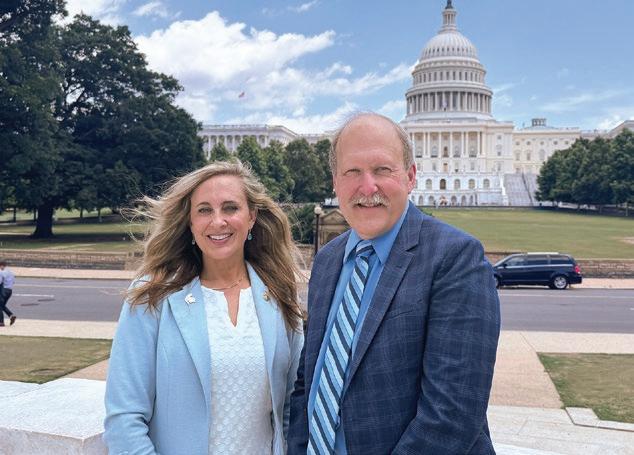
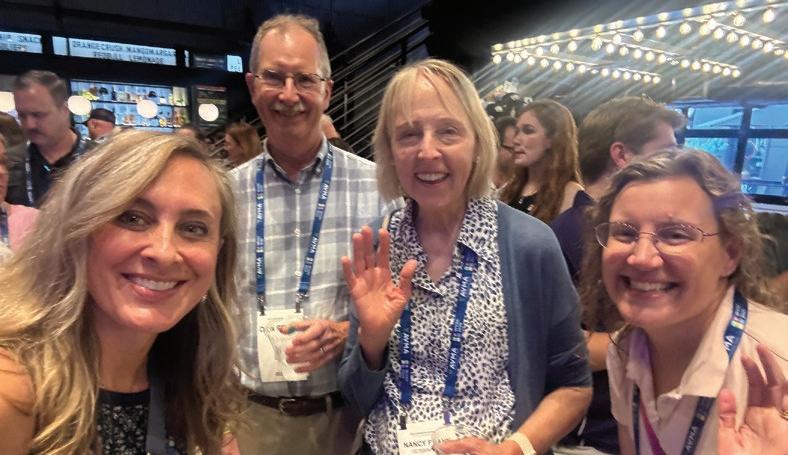

Council on Veterinary Service Representing At-Large: Dr. Stewart Silverman
• Council on Veterinary Service Representing Recent Graduates or Emerging Leaders: Dr. Tara Fellows Barron
Dr. Jon Pennell, AVMA Treasurer, delivered his report to the HOD. Member satisfaction for all members, no matter where they are in their professional lives or whatever endeavor they are in, was mentioned as a top priority throughout Dr. Pennell’s update. Dr. Pennell indicated that 2025 has been a difficult year for the budget, and that cuts have been made in operations. However, AVMA strategic initiatives have continued with the most money allocated ever. Dr. Pennell reviewed the 2024 financial figures, the 2025 budget was discussed, and strategic initiatives for 2026 were highlighted. A written copy of the AVMA 2024 Annual Report was distributed to all HOD members.
The AVMA was proud to host the 40th World Veterinary Association (WVA) Congress alongside the AVMA Convention. This was the first collaboration between AVMA and the World Veterinary Association since 2005 and only the third time the WVA Congress has been held in the U.S. The HOD received greetings from many international dignitaries.
The next AVMA convention will be held July 10-14, 2026 in Anaheim, California.
AVMA PAC Update
The AVMA PAC Board has the responsibility for raising funds to contribute to members of Congress and to allow access to these individuals to discuss the needs of veterinary medicine in federal legislation. During the last election cycle, a record $64,0000 was raised with also a record level of distribution being achieved. The donations to these individuals are not based on the party they belong to but on which committees they serve on and how they help to benefit veterinary medicine. Every year the contributions are evenly split and are nonpartisan in nature.
The AVMA Board of Directors has made the Governmental Relations Department (GRD) a top priority. The staff in Washington works diligently as our eyes, ears and voices in Washington. Without the financial contributions, we would not have a seat at the table.
You can become involved by contributing to the AVMA PAC at pac.avma.org or with your dues renewal and by joining the Congressional Advocacy Network (CAN) on the AVMA Website avmacan.avma.org
Without a concerted effort, outside forces outside of our profession will determine the future of veterinary medicine. Stay involved and engaged to help shape our world and impact issues involving animals and veterinary medicine.
Board Updating MVMA Bylaws
Earlier this year, the Board realized that some aspects of the MVMA bylaws needed to be updated. Board President Dr. Matt Hynes assembled a task force to dive into the weeds and recommend changes.
The task force has done yeoman’s work in reviewing the details and addressing conflicts and ambiguity. It has also explored deeper issues and has brought those issues to the Board for discussion to ensure the changes ultimately recommended reflect the type of organization MVMA wants to be.
According to the current bylaws, amendments must be discussed by the Board at three consecutive meetings before a vote is taken. The Board has discussed bylaws
Association bylaws are its internal operating rules for the association, outlining how the organization should be governed and managed as well as aspects of membership.
changes at its Spring and Fall meetings and plans to hold the third and final discussion at its Winter meeting, ahead of the vote to adopt the amendments. The proposed changes will be made available to members ahead of the Board’s vote.
Strategic Planning Moves into Next Stage
Earlier this year, MVMA embarked on a strategic planning process. This has included town halls, a member survey, focus groups, interviews with key stakeholder partners and other data gathering.
As we move into the fall, the Board and a few select members will dive into the value proposition of membership. This work combined with the data gathered earlier will be coalesced to
provide a complete mosaic of vet med in Michigan. The Board will use all of this information to set new strategic goals for the MVMA.
The plan is expected to be adopted by the Board at its winter meeting and rolled out to membership at the Annual Member Meeting at the end of the year.
Membership Benefit Spotlight
Supporting Your Team:
HR Consultations Now Available to MVMA Members
By Rachel Boersma, Director of Member Services
Managing a veterinary practice means juggling many responsibilities – staffing, compliance, and workplace dynamics are often among the most challenging. That’s why MVMA is proud to offer a valuable benefit to our active members: a free 30-minute human resources consultation with a professional from HRM Services.
Whether you’re dealing with a complex personnel issue, seeking guidance on HR policies, or simply looking for expert insight, this consultation can provide clarity and confidence. HRM Services is staffed by experienced HR professionals who understand the unique needs of veterinary practices.
Accessing This Service Is Simple:
Visit the MVMA website and look under the Membership tab.
Click on the Practice Hub, and from the drop-down menu, you’ll find the contact information needed to schedule your consultation directly with HRM Services.
In addition to one-on-one support, MVMA has partnered with HRM Services to offer a series of 10-minute video segments featuring up-to-date HR tips and best practices. These are perfect for busy professionals who want practical, actionable advice in a short amount of time.
This is just the beginning. Stay tuned: more human resource tools and resources will be added to the Practice Hub in the months ahead. MVMA is committed to helping our members build stronger, more resilient teams.
Welcome New Members
May–July, 2025
Maznoor Ahmad
Jeannie Bellamy
Ellen Burns
Taylor Carlini
Marisa Cervantes
Jenni Ciampichini
Hannah Clark
Oliva Eley
Jordanne Garshott
Kendall Hermann
Karen Holloway
Kelly Houghston
Amanda Hynes
Christopher Keeley
Alyson Keir
Joshua Kim
Jerilyn Klich
Joseph Korn
Michelle Langlois
Michelle Lindemulder
Mani Maheshwari
Crystal McConnell
Christopher Meyer
Andrea Milam
Richard Pacer
Monica Parmenter
Ryan Patterson
Jovanna Perez
Gerald Rusin
John Rysavy
Christine Schocke
Noah Schoeborn
Richard Siegle
Stephanie Skrinner
Shawn Spencer
Jean Uhl
Alyssa Vatter
Patricia Weber
Carolyn Zalewski
Member Spotlight
Lauren Lauwers, DVM
A 2018 graduate of MSU CVM
Dr. Lauren Lauwers is with a mixed animal practice that serves companion animal, equine, and food animal patients. In addition to her DVM, Dr. Lauwers also has a Masters of Science in Food Safety from MSU.
When did you know you wanted to be a veterinarian?
The typical cliche: since I was a little girl. Growing up with cattle, pigs, and chickens, I was absolutely hooked on animal care from an early age. My mother fondly tells the story about me carrying a chicken into the house with a bleeding foot asking for Neosporin and bandages.
What do you love about your work?
Working with cattle has always been what I loved about large animal medicine, but it is the people that really bring me joy. Being a herd veterinarian means I get to visit the farm for routine wellness and herd checks so where some of my small animal colleagues will see their clients for wellness visits maybe a few times a year on average, a lot of my farms I am visiting multiple times a month. Because of this I have formed some of my best relationships with clients. They have come to my wedding and helped take care of my toddler when he tags along on a farm call. It is such a cool part of my job to meet and work so closely with clients that they have become like family.
Share with us a memorable or particularly meaningful patient success?
One that really has stayed with me is a goat doe that needed a front limb amputation due to a complicated fracture that was also less than two months pregnant. The owner wanted to try
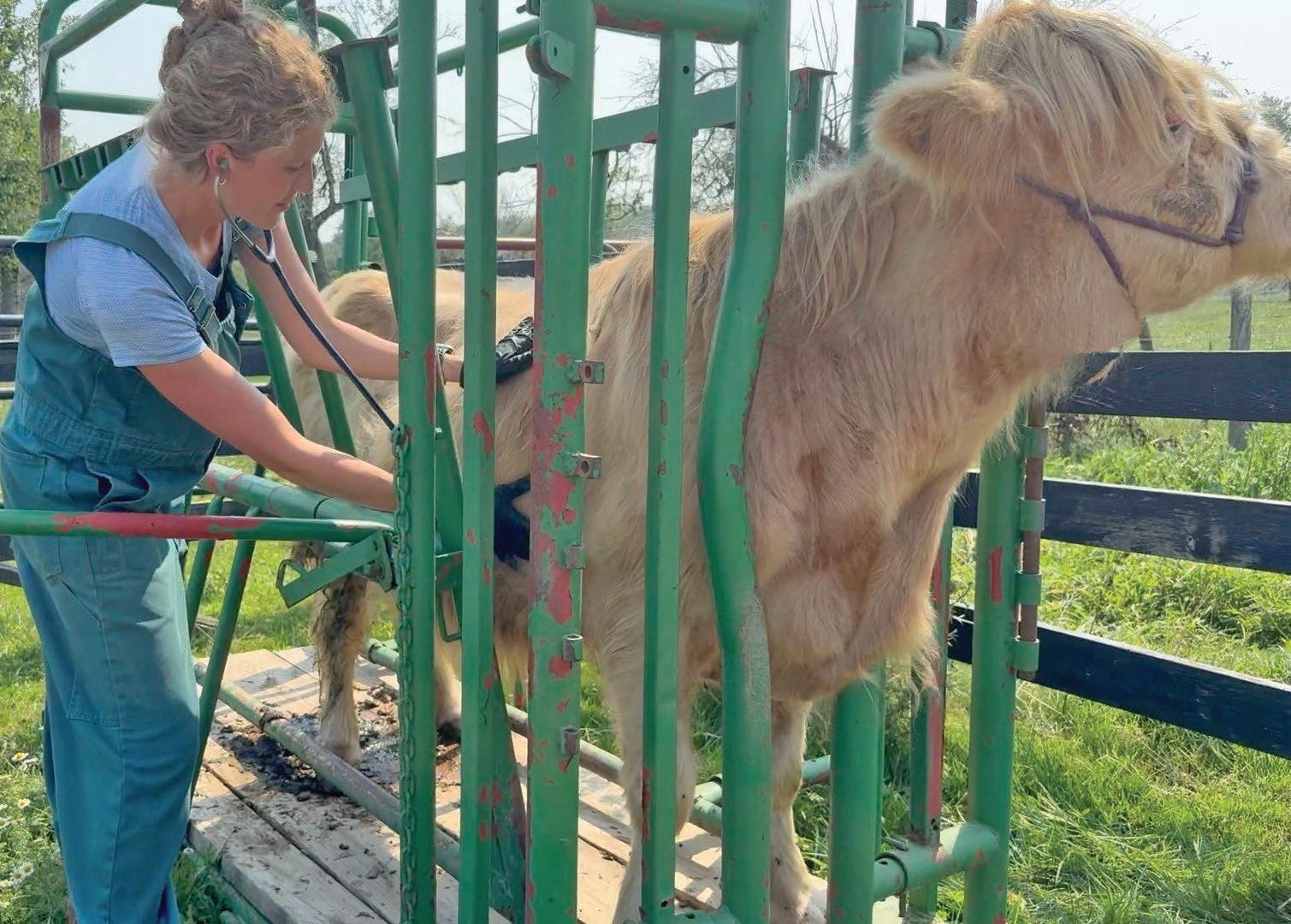
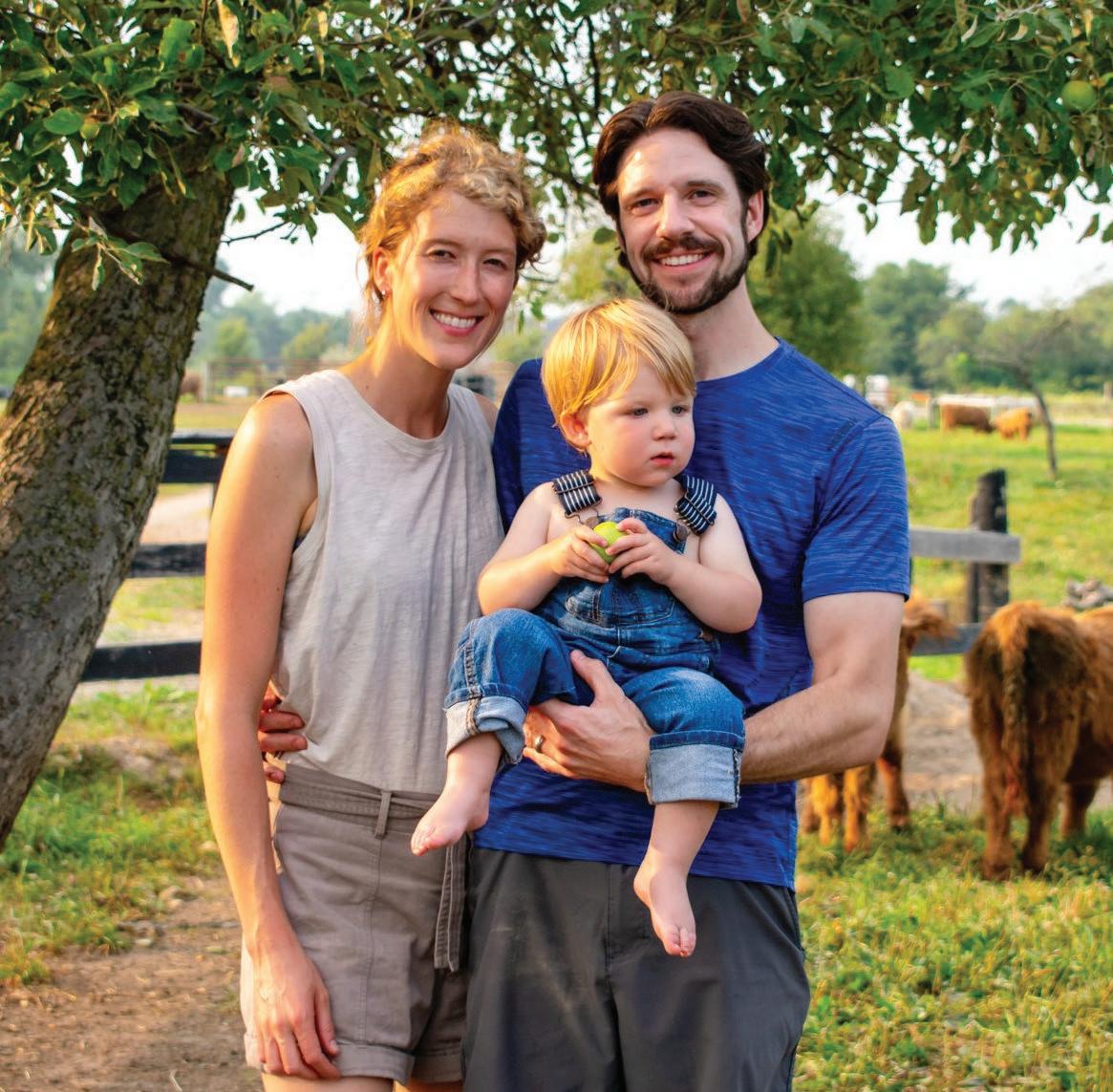
to save her and hoped the kids would survive the anesthesia and they did! The doe recovered well from surgery and delivered her kids with no complications.
How do you recharge your batteries after a particularly challenging day?
Spending time in our vegetable garden or outside in general with my toddler. We both benefit greatly from time outside when our batteries are low.
What are your hopes for your career or for the larger vet med space?
To help encourage and recruit more food animal practitioners. It’s so important for our food supply to have veterinarians working closely with producers. We need more out in the field to educate and work alongside farmers. And the farmers want them too, they love when I bring students with me and most of the time the first question, they ask the students is if they want to be a large animal veterinarian.
What advice would you give a new graduate just starting out?
I think the saying “nobody cares how much you know ‘til they know how much you care” really resonated for me as a new grad. I found clients would be more open and receptive to my suggestions and advice if I was open and receptive to them first.
MVMA Classified Ads
VETERINARIANS
Associate veterinarian wanted to join our small animal hospital in beautiful Northern Michigan. Potential future buy-in for the right candidate. Enjoy practicing high quality medicine and surgery with a terrific support staff and wonderful clients. Full-time (threeto-four-day work week) or part-time considered with no emergency duty and flexible scheduling. Enjoy a good worklife balance! We are a full-service clinic equipped with digital radiography, IDEXX in-house lab equipment, laser therapy, and digital dental X-rays. Looking for a team player with great communication skills, medical skills, and surgical skills. We offer a generous base salary with possible production-based bonus, 401K match, medical benefits, liability coverage, CE allowance, and professional dues paid. No after-hours emergency and flexible schedule. Contact Dr. Loretta Pantenburg, 110 S. Division Street, Bellaire, MI 49615, 231-533-6522, bellaireanimalhospital@gmail.com
At Orion Oaks Animal Hospital, we are committed to providing the best quality care to our patients and clients. We are a privately owned small animal clinic. We are looking for a part-time or full-time associate. We are currently a two-doctor practice with a strong support staff including multiple LVTs. We are a fully equipped, full-service hospital with in-house lab equipment, digital radiology, digital dental radiology, and ultrasound. We encourage veterinarians of all experience levels to apply. We love new graduates and the opportunity to provide mentorship and learn from recent graduates. Experienced doctors will find strong support in developing their interests. We provide the following comprehensive benefits: generous compensation package, no after-hour or on-call duties, generous vacation time, flexible schedules, medical and dental insurance, CE Allowances, licensing fees/Dues, and a Retirement plan. To learn more about our practice please contact us at orionoaksanimalhospital@gmail.com
Animal Clinic of Holland is seeking a full or part-time associate veterinarian to join our team. New graduates welcome! We’re a four-doctor, privately-owned small animal practice in beautiful Holland, MI. Our long-standing reputation and strong support staff make for a great place to build your career. We focus on dogs and cats only, with no emergency work required. Two of our current doctors are planning to reduce hours, and ownership potential exists for the right candidate. Equipment includes Neo cloud-based software, Vello platform, digital radiography, ultrasound, acupuncture, therapy laser, Tonovet, in-house IDEXX lab, and more. Surgical interest is a plus. Mentorship available. Salary $100–130K, negotiable based on experience. Pro-Sal considered. Licensing fees, CE stipend, and signing bonus included. Inquiries & resumes: suevetdogcat@gmail.com, 616-396-6543 (ask for Dr. Sue Vanderjagt), cell: 616-886-9452, animalclinicofholland.com, 1106 Washington Ave., Holland, MI 49423.
Rediscover the joy of Veterinary Medicine at Gobles Veterinary Clinic. We're a friendly, communitycentered small animal practice. We've served our rural town for 32 years and recently opened a brand-new, 6000 sq ft custom-built facility in 2024. Our independently owned practice is home to four experienced, supportive DVMs who love mentoring and working together. We value collaboration, kindness and meaningful relationships with clients and their pets. We offer a wide variety of cases, with special interests in dentistry, orthopedics, internal medicine and preventive care. No after-hours calls. Enjoy competitive pay and benefits with a flexible schedule that supports life outside the clinic. For more information, contact us at marilbaker6@gmail.com
Lane Animal Hospital in Chelsea, MI is seeking a veterinarian to grow our team. Family-owned GP with highly skilled, passionate team who love technology.
Fall/September 2025
Supportive DVM team who enjoy teaching & learning, rare solo shifts. In-house lab, digital radiology including dental, Navi ultrasound. We share our building with Great Lakes Veterinary Dentistry and work closely with a certified rehab veterinarian as well as a boarded surgeon. Over half of our team is Fear Free and/or Cat Friendly certified. Competitive & negotiable on pay structure; paid health and liability insurance, licensing, professional memberships; paid time off; 401K match, profit sharing, and CB pension plans; annual CE budget. Email inquiries to rachel@laneanimalhosp.com
Join Riverside Cat Hospital. Seeking a skilled, passionate veterinarian for our gold-level certified feline practice. Enjoy low turnover, supportive management, no weekends, and a welcoming culture focused on well-being. Exceptional, collaborative work culture in a state-of-the-art 4,500 sq ft new facility: new ultrasound, digital X-ray, dental, radioiodine. Competitive pay up to $180K/yr total compensation: 23% pro-sal, 100% healthcare, three weeks of vacation, $2K relocation, dues, liability, DEA, $2500 CE, and no-cost pet medical care (+10% drugs/labs). Please send your resume to Victoria L. Travis, victoria@veterinarianrecruiters.com
Our well-established small animal practice in Marquette, MI, is seeking a dedicated and experienced full-time veterinarian to join our team. Our newly built, state-of-the-art facility boasts an integrated in-house lab, digital radiography, orthopedic surgery, rehabilitation program, and ultrasound capabilities. We offer a competitive salary and benefits package, including a sign-on bonus and ProSal compensation structure, reflecting our commitment to valuing our team members. Marquette, MI, is known for its stunning natural beauty and high quality of life. For more information or to apply, please contact Dr. Tim Hunt at drtim@drtims.com
Located in the beautiful township of Canton, Michigan, at Alsager Animal Care Center, we are committed to providing compassionate, high-quality veterinary care for pets and exceptional service for their families. Our practice is equipped with state-of-the-art technology, a dedicated support team, and a loyal client base. We are seeking a passionate and skilled Associate Veterinarian to join our growing team. The ideal candidate is a team player with excellent communication skills, a strong work ethic, and a genuine love for animals. Whether you are a recent graduate or an experienced veterinarian, we provide mentorship, professional development opportunities, and a balanced schedule. New hire would perform physical examinations, diagnostics, and treatments, develop personalized care plans and communicate them clearly to clients. Will conduct surgical procedures and dental cleanings as needed, maintain accurate and thorough medical records, and collaborate with technicians and support staff to ensure the highest level of patient care. Required is a Doctor of Veterinary Medicine (DVM or VMD) degree from an accredited institution. Please send resume to alsager@comcast.net
Cottonwood Veterinary Clinic is looking to add a full-time associate who is interested in future ownership. Located just West of Grand Rapids, we are a well-established and growing three doctor, small animal practice, which includes six licensed technicians. We pride ourselves on practicing high-quality veterinary medicine, surgery and dentistry. Our hospital is well equipped with digital X-ray, digital dental X-ray, and ultrasound. We offer a competitive salary and benefits package, including a schedule that helps maintain a positive work/life balance. We have no after-hour or weekend emergencies and we would love the opportunity to share with you more about our practice and the community we serve. All experience levels are welcome. Please reach out to Robert Childress at 616/667-6700 or visit www.cottonwoodvetcenter.com for more details. If you are interested in joining our team, please send your resume to childr072493@gmail.com
The team at South Arbor Animal Hospital in Ypsilanti, Michigan is looking for our next full-time or part-time associate veterinarian. Our doctors are supported by a robust team including three CSRs, three LVTs, three VTs, and three VAs, which creates a one: four DVM to staff ratio. A new grad or an experienced vet would be a good fit on our team. Our full-time veterinarian schedule includes four weekdays, and we are closed on the weekends. We have multiple emergency clinics in our area, so our DVMs are not expected to be on-call. We would love to tell you more about our practice. Get the conversation started by applying today! Contact us at southarborah@yourvetdoc.com
Gratiot Animal Hospital, Saginaw, MI is a privately owned, community-focused practice with strong team retention. $150K+ salary + $5K signing bonus. Flexible four-day workweek (8:30–5:00 with two-hour lunch). No weekends or evenings, ever. Full benefits package: Medical (HAP), SIMPLE IRA with 3% match, $2,500 CE allowance, Malpractice, DEA/state licensing, and association dues, $2,000 relocation support, free Costco membership and birthday off. Brand-new, light-filled hospital: six spacious exam rooms, digital full-body & dental X-rays, ultrasound, Separate cat/ dog euthanasia rooms, isolation, two therapeutic lasers. Please send resume to: victoria@veterinarianrecruiters.com
MedVet has an opportunity to grow our hospital in Cleveland, Ohio. MedVet is the nation’s premier veterinary-owned and led organization, where doctors have the support of veterinary leadership committed to medical excellence and continuous resource improvement while enjoying ownership in the organization with our unique shareholder opportunities. Why join the team at MedVet Cleveland? MedVet Cleveland is a premier animal emergency and specialty hospital in the Cleveland area. ER doctors and specialists, including an on-site radiologist and anesthesiologist, collaborate to provide a comprehensive experience for MedVet clients and their pets. Brand new, state-of-the-art hospital with all the
technology and equipment you need to provide exceptional care. Ongoing training, scholarships, and continuing education opportunities for the entire team. For more information about MedVet, please visit our website at www.medvet.com or to submit a confidential CV, email Erika Allen, Senior Medical Recruiter at erika.allen@medvet.com. There are more positions listed at www.medvet.com/ careers. Moving somewhere we don't currently have a posting? We still want to hear from you!
Find your perfect work-life balance in Southwest Michigan. Schoolcraft Veterinary Clinic is hiring a small animal associate veterinarian. Enjoy a supportive, team-oriented environment with no after-hours, late nights, or weekends. Located near Kalamazoo, Schoolcraft offers small-town charm with big-city access. We offer mentorship, competitive pay, flexible benefits, and a true focus on your well-being. Contact Dr. Sheila Fitzpatrick at sfmmvet@vail.net
Advanced Animal Emergency is a privately owned 24/7 ER-CCU hospital located in Clinton Township, Michigan, just north of Detroit. We have been serving our local communities for over a decade and are looking to expand our veterinary team roster. Currently we staff 10 DVMs, ~50 support team members, and work with both normal ER clientele, as well as the Macomb County Animal Control, Detroit Pit Crew rescue, and several other municipalities/ rescue groups. This position is ideal for both seasoned ER veterinarians looking for a change to a more family-oriented practice style, and for veterinarians new to the ER world or the field in general. We provide a rigorous training program and unbeatable mentorship, as we pride ourselves on our educational initiatives, host students/interns regularly, and have raised many of our own ER vets in-house. We are quite busy, and host a full surgical suite, top-of-the-line ultrasound, digital radiology, advanced/long-term wound care, and a very thorough diagnostic lab in-hospital. Our scheduling is very flexible, and our compensation package is very competitive, as well. If you are looking to
see what we have to offer, please email directly to speak with one of our ownerdoctors and set up a tour. Please contact us at hynes.mj@gmail.com
Bancroft Veterinary Clinic is a privately owned small animal clinic seeking the right veterinarian to join our team with option to buy in. The ideal candidate will possess strong skills in medicine, surgery, and communication. The veterinarian will work closely with another veterinarian and team of technicians and support staff to ensure the best outcomes for our patients. The clinic offers the most up-to-date technology including a full in-house lab partnership with IDEXX, ultrasound, digital x-ray, dental x-ray & full dental unit, surgical laser, therapeutic laser and a dedicated surgical suite. Competitive salary, bonuses, 401(k) with employer matching, professional licenses and dues, continuing education, and a signing bonus are some of the many benefits offered. Please consider joining our team where your passion for animal health will make a difference in the lives of pets and their owners! We take patient care, client education, and staff development seriously, but have fun at work. We provide an excellent work/life balance with no evening or weekend hours and provide a family-first environment which makes for low employee turnover. If interested, please submit your resume to manager@bancroftvet.com
Full-time or part-time veterinarian wanted for privately owned small animal practice in Montrose, MI. Must be proficient in surgery and practice quality medicine. Good work-life balance, open Tuesday-Friday with no weekends or oncall. Clinic equipped with full Heska lab, ultrasound, digital radiology, therapeutic laser, Karl Storz endoscope, oxygen cages, and EzyVet software. Excellent support staff includes three receptionists, three assistants, and four experienced licensed technicians. Flexibility to customize your own schedule or do surgery exclusively. Benefits, PTO, and health/vision/ dental insurance available. We offer a very competitive salary depending on experience, motivation, and work ethic. Email montrosevethospital@gmail.com for more information.
LVTS AND VETERINARY ASSISTANTS
Join our busy 24/7 small animal emergency and critical care team, seeking emergency, critical care, surgery and anesthesia nurses. We’re currently seeking dedicated, compassionate, and hard-working team players committed to delivering top-quality patient care. Flexible scheduling: three 12-to-13-hour shifts or four 10-hour shifts per week, rotating weekends and holidays. Additional bonus pay for second and third shifts and weekend positions, signing bonus awarded after six months of employment. If you're ready to make a difference in the lives of pets and their families, visit careers@msu.edu and search for opportunities using the term ‘veterinary.’
Join our 24/7 large animal veterinary nursing team. We’re currently seeking dedicated, compassionate, and hardworking team players with previous equine experience who are committed to delivering top-quality patient care. Flexible scheduling with three 12-to13-hour shifts or four 10-hour shifts per week, rotating weekends and holidays, additional bonus pay for second and third shifts and weekend positions, signing bonus awarded after six months of employment. If you're ready to make a difference in the lives of pets and their families, visit careers@msu.edu and search for opportunities using the term ‘veterinary.’
Two-doctor small animal hospital in Farmington Hills is looking for a technician or receptionist. Must have at least two years of experience in a veterinary hospital. Starting pay $20. hour. Good benefits, flexible hours, great working environment. Send resume to joannjeffrey234@gmail.com
Full-time licensed veterinary technician needed for busy fourdoctor AAHA hospital in Ann Arbor Michigan whose focus is on high quality patient care and client education with an interest in dentistry. Licensed Veterinary Technicians are fully utilized and have
many responsibilities, therefore must be licensed. Externs welcome with the possibility of full-time employment following licensure for the right individual. Candidate must be a meticulous, outgoing team player who is great at multitasking. Amazing staff dedicated to compassionate care and teamwork. Excellent pay and benefits. Sign on bonus after 90 days. Hours to be determined. Send resume to shedding@westarbor.com
PRACTICES AND EQUIPMENT FOR SALE
Eastern Michigan. Gross $1M. Long-standing, small animal practice, in a diverse community. Well-equipped, well-maintained, and well-trained staff. Call for more information. (MI-9530). Contact Total Practice Solutions Group –Great Lakes at 440-933-9522 or bret@tpsgsales.com
Western Michigan. Gross $1.7M. Long-standing, small animal practice, in a picturesque lakeside community. Well-maintained facility, well-trained staff, and diagnostics. Call for more information. (MI-9525). Contact Total Practice Solutions Group – Great Lakes at 440-933-9522 or bret@tpsgsales.com
Southern Michigan in Kalamazoo/ Jackson Area. Gross $1.43M. Long standing, small animal practice, with strong staff. Call for more information. (MI-9350). Contact Total Practice Solutions Group – Great Lakes at 440-933-9522 or bret@tpsgsales.com
Southern Michigan in Kalamazoo Area. Gross $1.3M. Well-equipped, small animal, computerized practice in an excellent facility. Staff includes associate DVM, LVT, assistants, receptionists, and office manager. Call for more information. (MI-9310). Contact Total Practice Solutions Group – Great Lakes at 440-933-9522 or bret@tpsgsales.com
Central Michigan. Gross $1.2M. Long standing, well-equipped, small animal practice. Facilities are well-maintained and practice is well-staffed. Px is offered at $730K, RE is offered at $250K. Call for more information. (MI-9410). Contact Total Practice Solutions Group – Great Lakes at 440-933-9522 or bret@tpsgsales.com
Buying or selling a veterinary practice?
Rely on the expertise of Total Practice Solutions Group. See display ad in the printed issue. Contact us for a free consultation. We are happy to help. Contact Total Practice Solutions Group –Great Lakes at 440-933-9522 or bret@tpsgsales.com
Recently closed, long standing small animal veterinary practice with living quarters, client records, medical equipment and real estate offered for sale, lease, or option to buy. Thriving practice prior to closing which could quickly be restarted. Owner willing to help with transition. Located in lakeside resort community in south-central Michigan within 30-minute drive of Ann Arbor, Lansing or Battle Creek. Excellent schools and growing community. For additional information email practice4sale@currently.com
Charlevoix County, Michigan – thriving amall animal practice for sale! Renovated and turnkey 2,000 sq. ft. facility with three exam rooms, surgical suite, digital X-ray, IDEXX lab, etc. Generates $1.06 million annually with growth potential. Part-time seller transition. Includes real estate just minutes from crystal-clear waters of Lake Charlevoix. Unmatched lifestyle! For more information, contact PS Broker at info@psbroker.com or 800-636-4740. View Listing #MI4 at go.psbroker.com/MI4
Practice for sale in Southwest Michigan. Solo, small animal practice that is financially healthy with terrific cash flow to the owner. Housed in a free-standing, 4,200 sq. ft. facility with six exam rooms! Contact David McCormick (dmccormick@tmccg.com) for more information on MI508.
Practice for sale north of Detroit, MI. Established companion animal practice in a great location. Revenues are over $2M and growing. Housed in an attractive, free-standing 4,300 sq. ft. facility that is well-equipped. Contact David McCormick (dmccormick@tmccg.com) for more information on MI409.
Small animal practice for sale about an hour N/NW of Detroit, MI. It is an active and growing, solo practice that is wellequipped. Housed in a well-maintained facility with excellent visibility and room for future growth. Contact David McCormick (dmccormick@tmccg.com) for more info on MI412.
Small animal, general practice for sale in Western, MI. Revenues over $1.1M. Housed in a 3,600 sq. ft. facility with all the usual amenities. Owner is ready to retire so both the practice and real estate are for sale. Contact David McCormick (dmccormick@tmccg.com) for more info on MI432.
Price Reduced!! Coastal Southwest Michigan. One-to-two doctor, small animal practice a mile from the shores of Lake Michigan. Housed in an attractive, 3,000 sq. ft. building. Both the practice and the real estate are for sale. Contact David McCormick (dmccormick@tmccg.com) for more info on MI328.
Companion animal practice for sale in Southern Michigan, near Battle Creek. Housed in an attractive facility with three exam rooms and all the usual amenities. Both practice and the real estate are for sale. Contact David McCormick (dmccormick@tmccg.com) for more info on MI423.
Established small animal practice for sale near Lansing/Okemos, Michigan. The practice is well-equipped and has room for future expansion. The practice space is located on the lower level and a four-bedroom home on the upper floor. Contact David McCormick (dmccormick@tmccg.com) for more info on MI407.
Small animal clinic for sale north of Detroit, Michigan. The practice revenues are up 20% this year and growing. It is housed in a 1,200 sq. ft. facility with good visibility. Both the practice and real estate are for sale. Contact David McCormick (dmccormick@tmccg.com) for more info on MI235.
Practice for sale in rapidly growing north Oakland County. Long standing practice on busy Lapeer Road two miles south of Lake Orion. Formerly a busy three DVM practice, currently running as a solo practice. Includes real estate and free standing 3700 sq ft building. Excellent location. Four exam rooms, separate treatment, dental, and surgery rooms. Plenty storage and office space. Caretaker apartment. Priced at the value of the building and land only. Excellent opportunity to revitalize the practice, create the practice of your dreams, and build significant value. Text Mike Donaldson 248-701-4003 for more details.


HALISHAK C - 216.217.7822
- 440.933.4522


CLIENT TESTIMONIAL: DR. PAUL & GAIL YATSO - ONCONTO FALLS, WI
“Bret Halishak, what a privilege it has been for us to work wit h you. Your energetic personality, leadership, professionalism, and excelle nt sales knowledge and skills gave us the confidence we needed to ensure us that this venture was going to be a great success...
From the very first conversation of listing the practice, to fi nding the perfect buyer, to the completion of the closing, you listened to our wa nts, needs, concerns, and you delivered!”
The veterinary industry has rebounded as consolidators are aggressively looking for 2+ DVM financially sound practices.
Reach out to see how your practice finances stand today! INDUSTRY MULTIPLES ON THE RISE
SETUP YOUR OWN EXIT STRATEGY
Too profitable that no one can afford your practice?
Start working backwards on retirement! Employment agreements are getting longer, making it crucial to negotiate your exit timeline.
TPSG MICHIGAN PRACTICE LISTINGS
Southern Michigan in Kalamazoo Area. Gross $1.3M. Well-equipped, small animal practice in an excellent facility. Staff includes an associate DVM, an LVT, assistants, receptionists, and an office manager. (MI-9310)
Southern Michigan in Kalamazoo/Jackson Area. Gross $1.43M. Long-standing, small animal practice with strong staff. Call for more information. (MI-9350)
Central Michigan. Gross $1.2M. Long-standing and well-equipped small animal practice. Facilities are well-maintained, and practice is well-staffed. Px is offered at $730K, RE is offered at $250K. (MI-9410)
Western Michigan. Gross $1.7M. Small animal, with a well-maintained facility with four exam rooms, and a full suite of diagnostics. Beautiful surrounding area to own a practice. (MI-9525)
Eastern Michigan. Gross $1M. Established small animal practice with a great facility that can withstand future growth. Well-equipped with strong profitability, the new owner is to earn $310,000 after mortgage and expenses. (MI-9530)
Michigan Veterinary Medical Association 2144 Commons Parkway Okemos, MI 48864-3986
p. 517-347-4710 | f. 517-347-4666 mvma@michvma.org | www.michvma.org




Professional Excellence. Compassionate Care.

Take Control of Your Veterinary Inventory
Sitehound streamlines inventory management for veterinary services, enabling real-time tracking of medical equipment, supplies, and pharmaceuticals to ensure efficient operations and better patient care.
